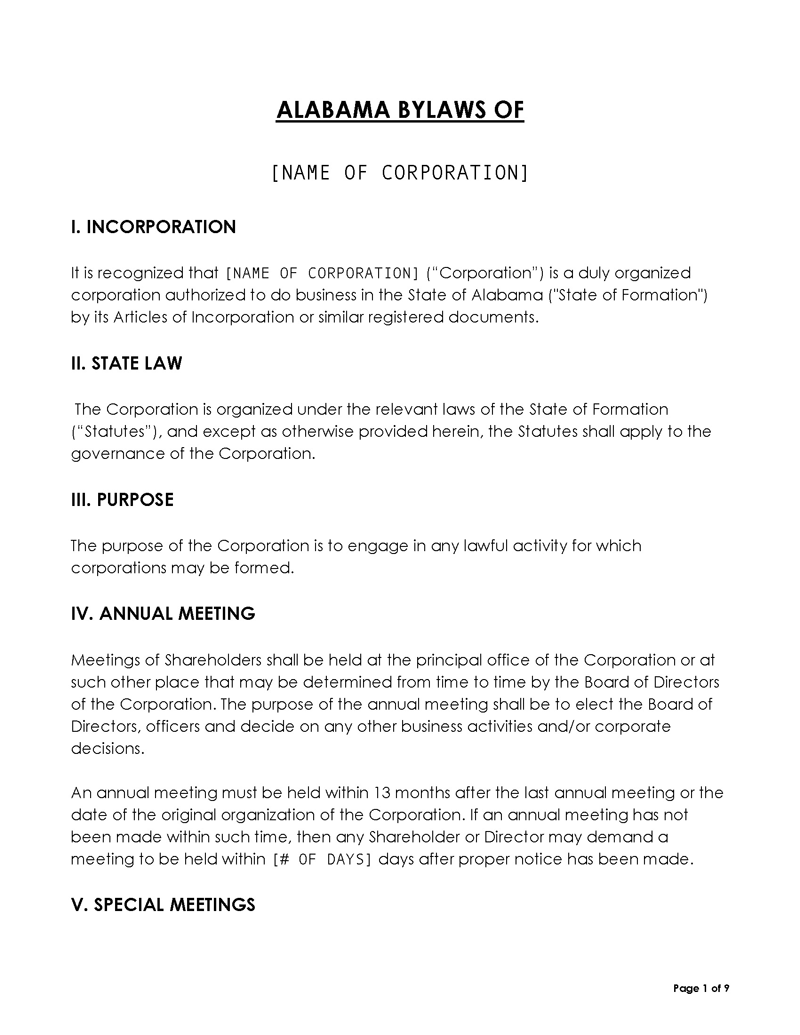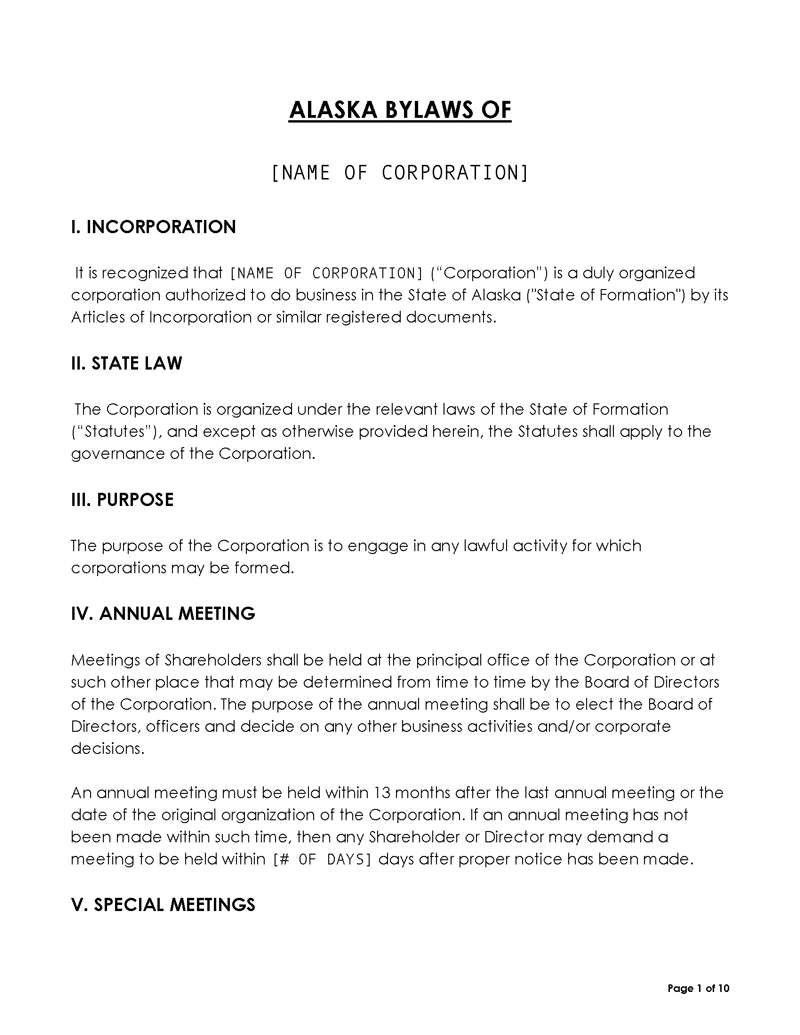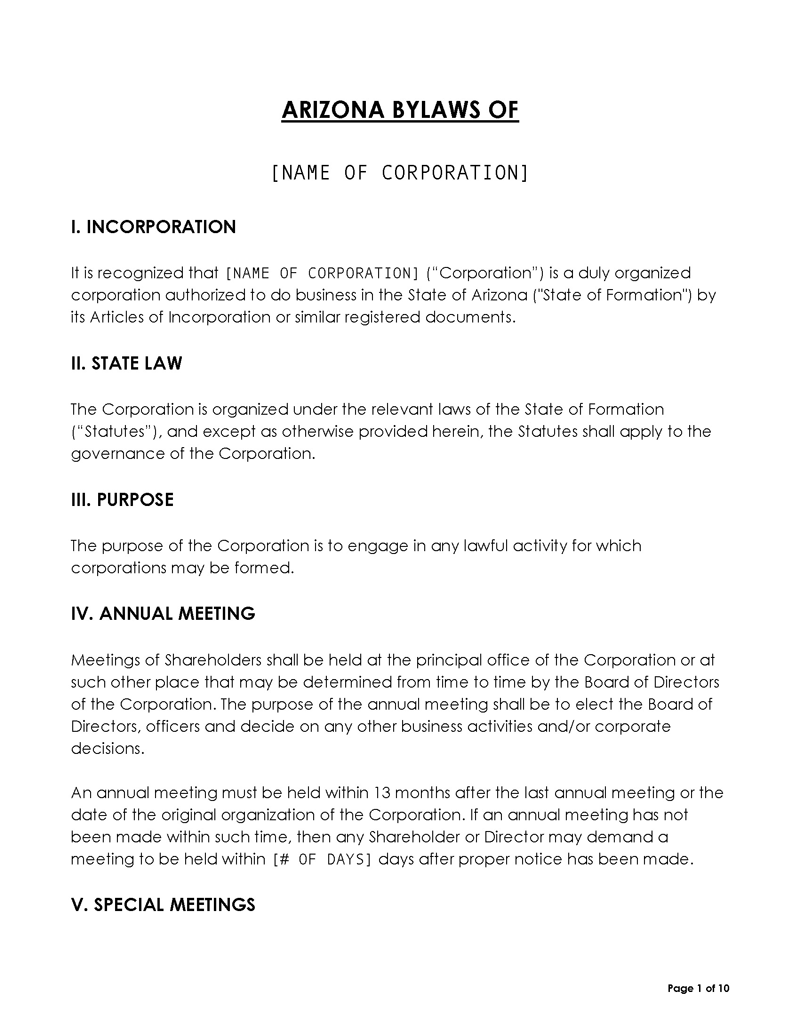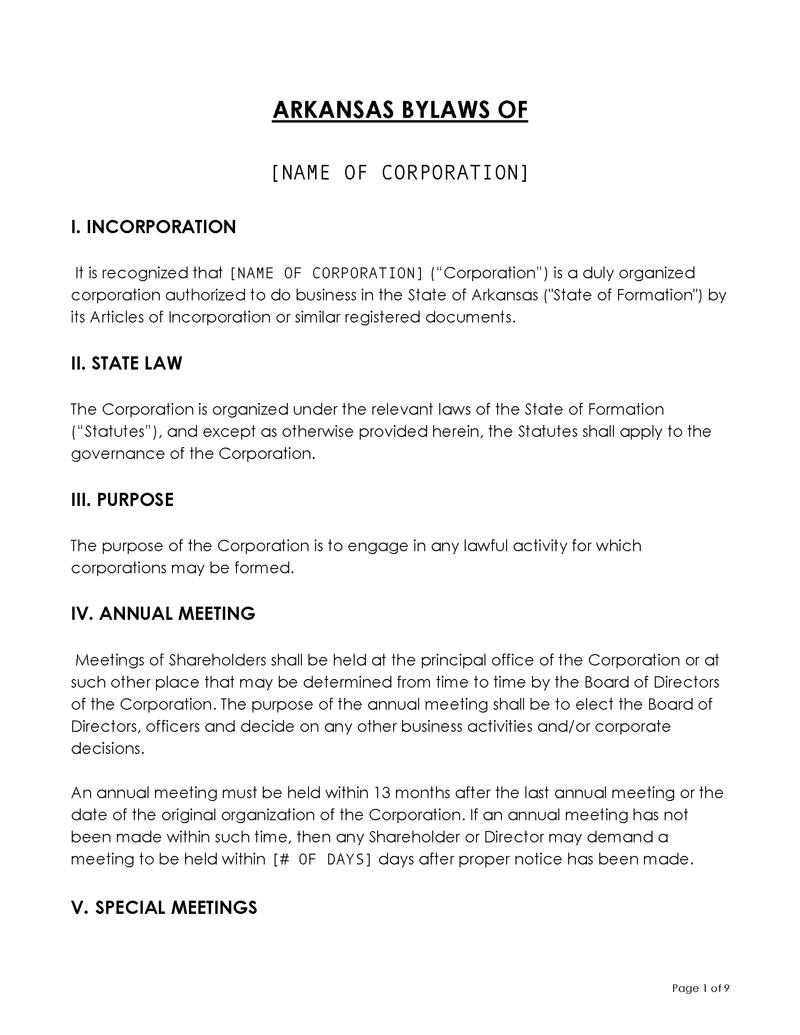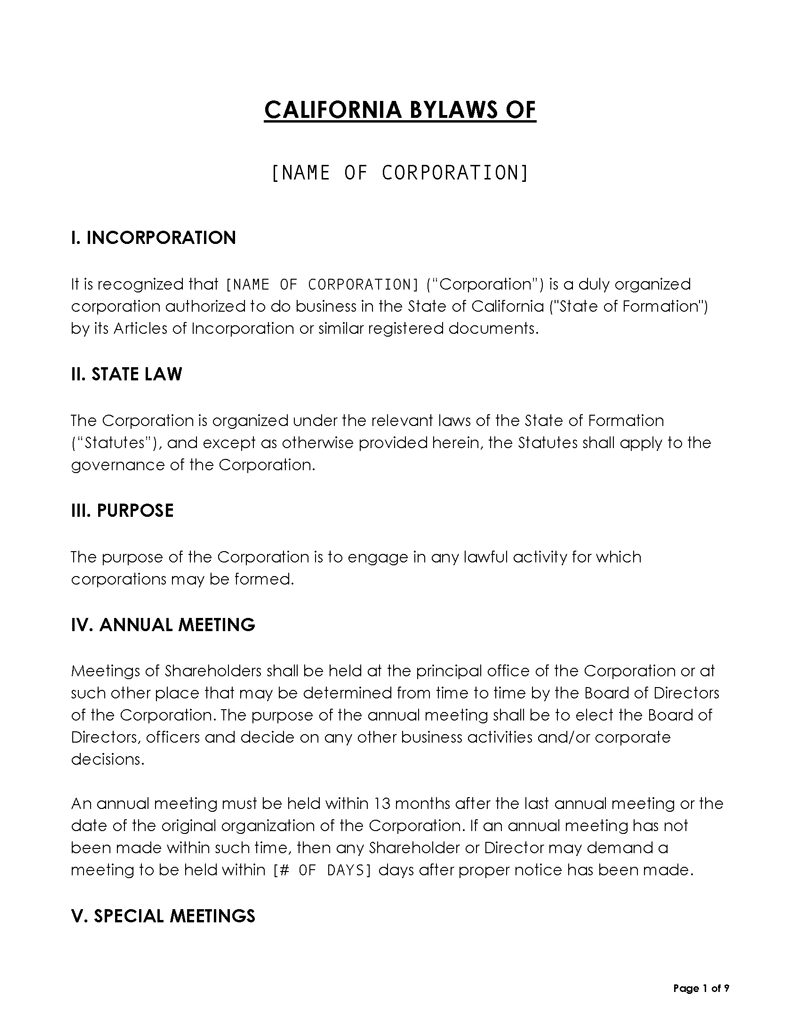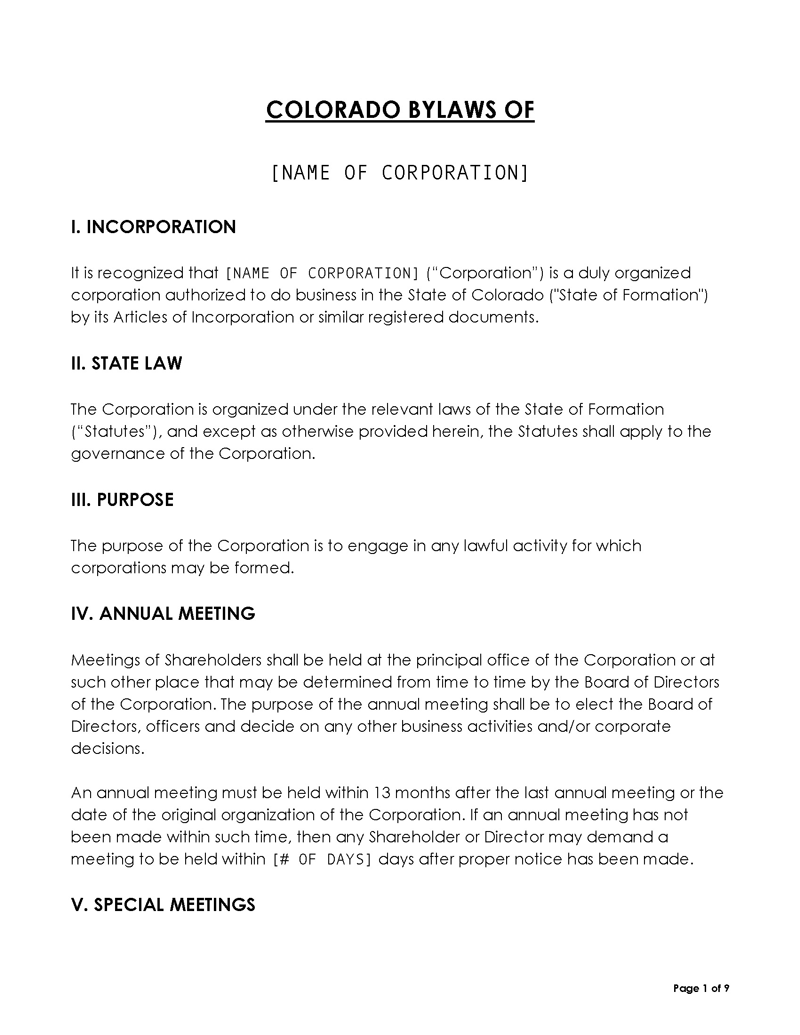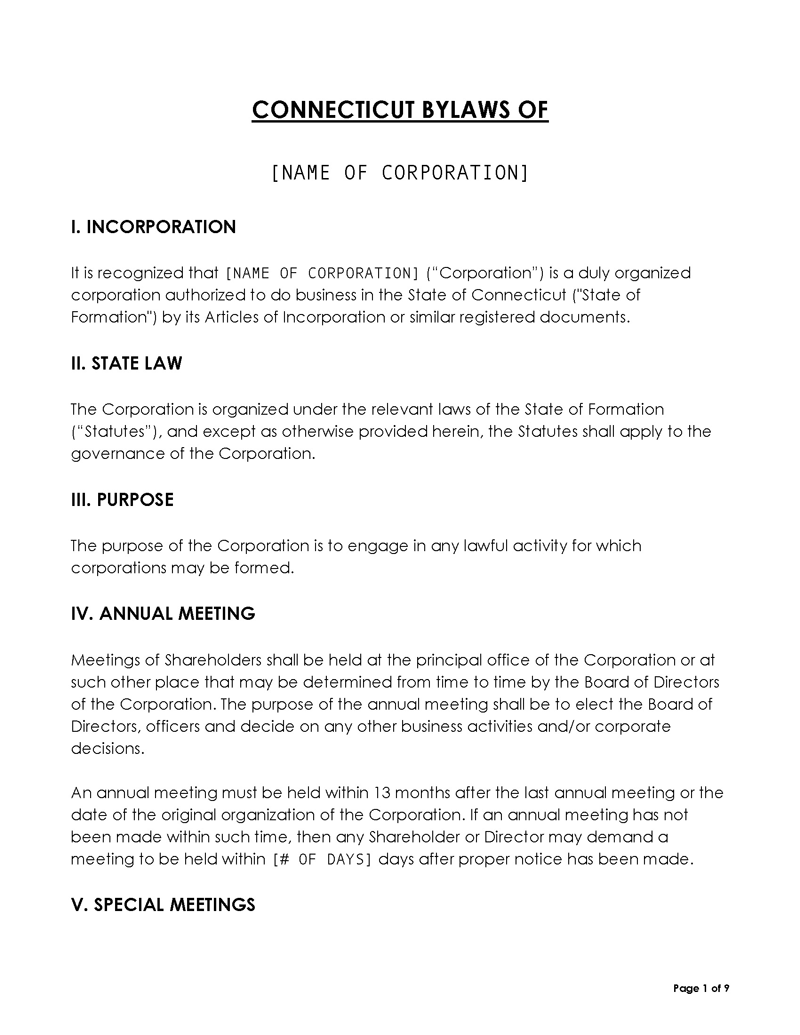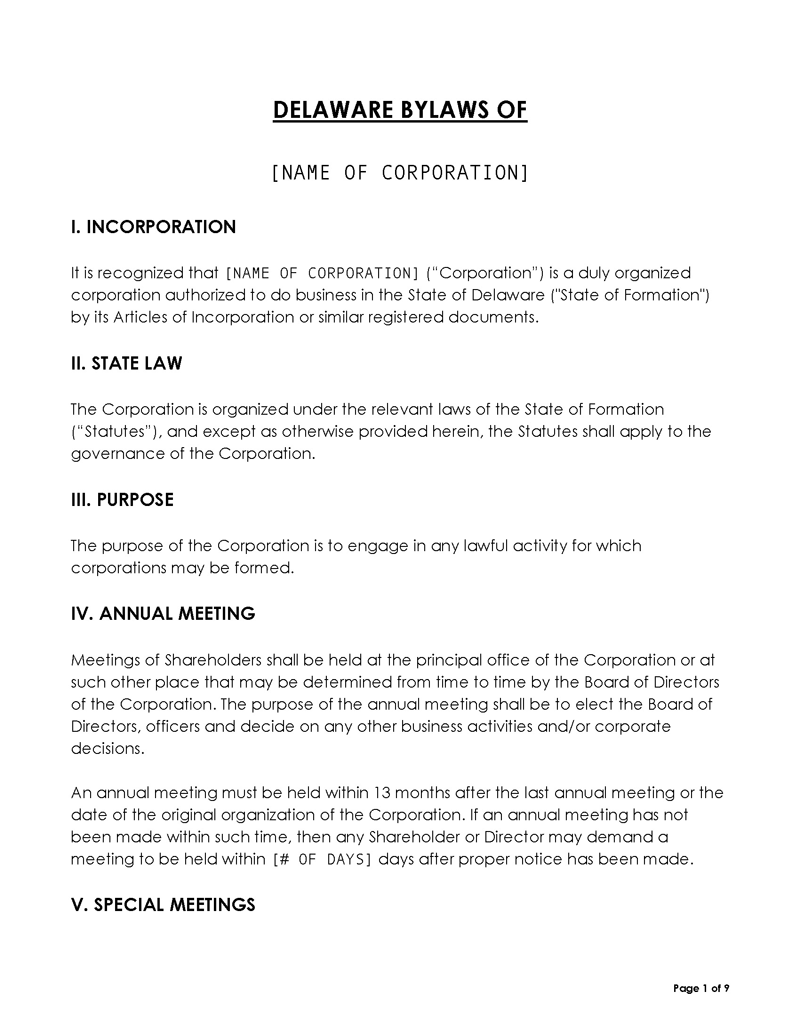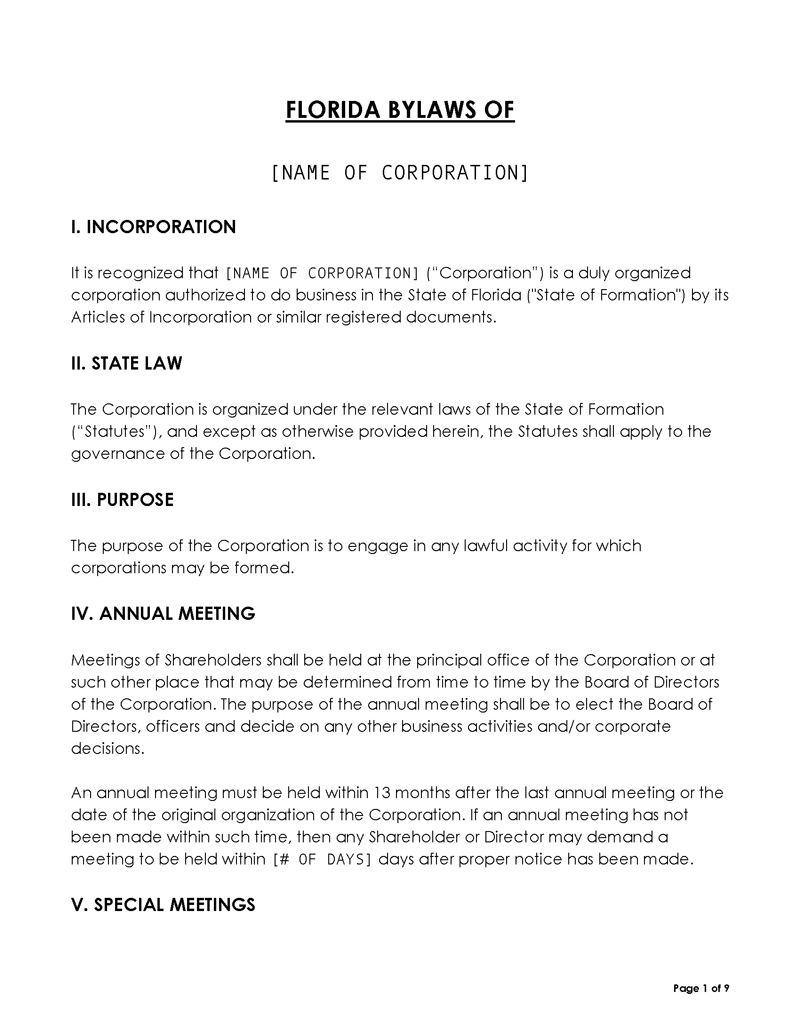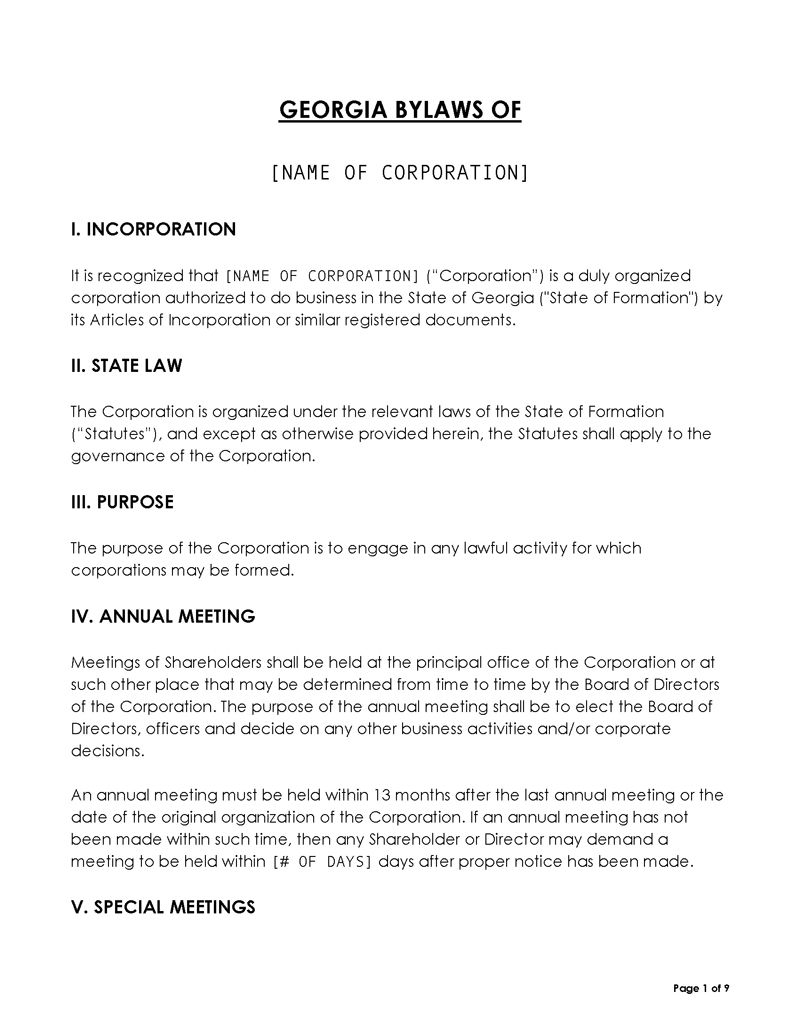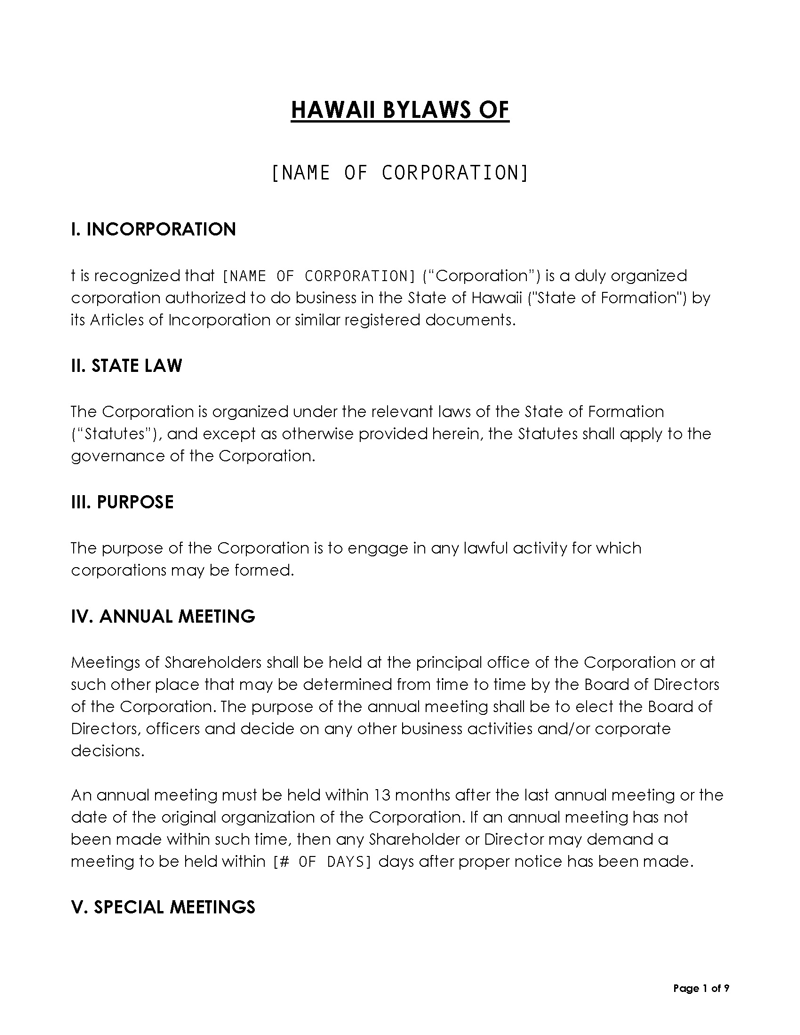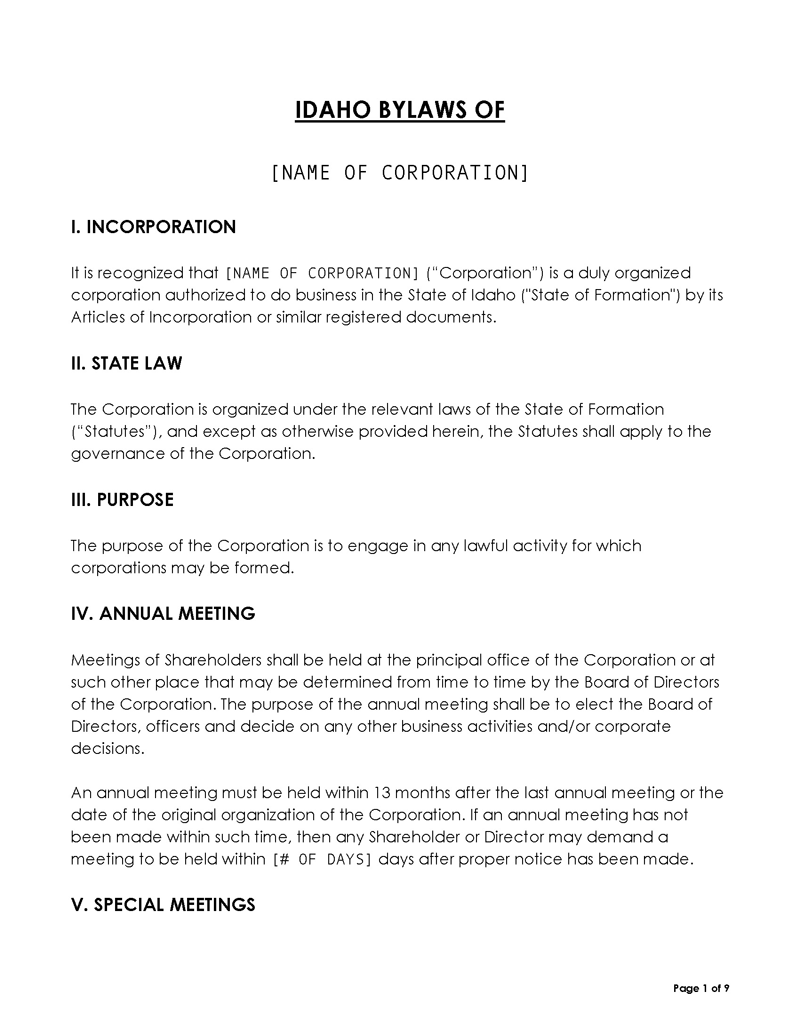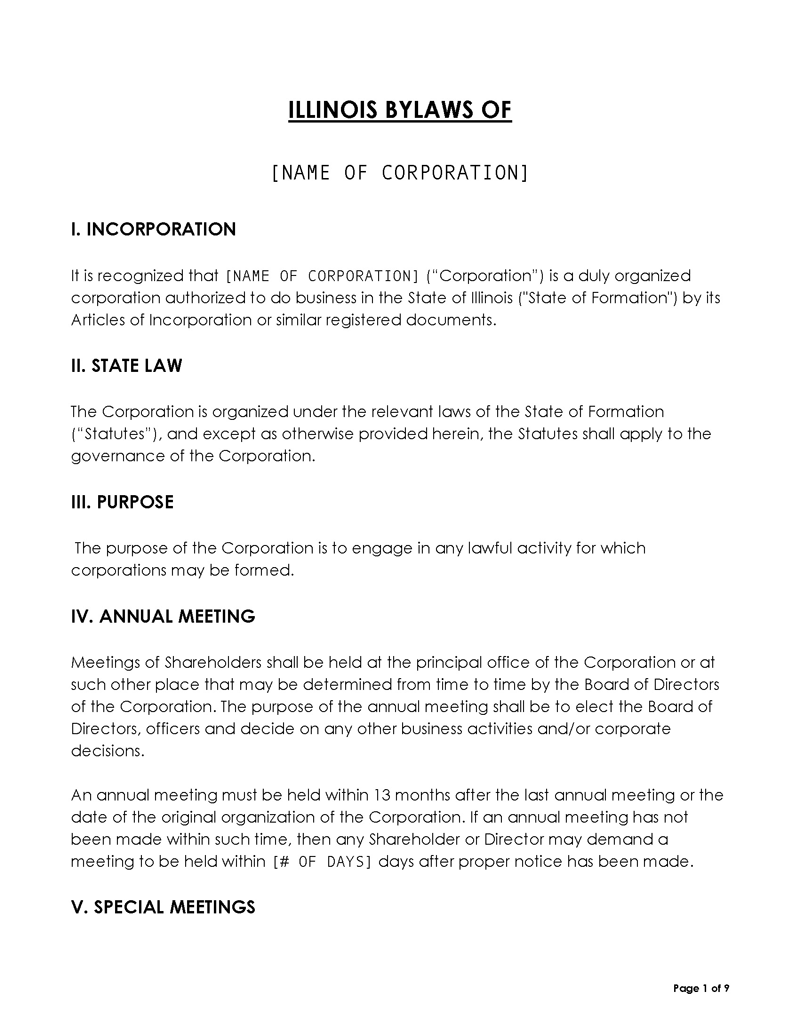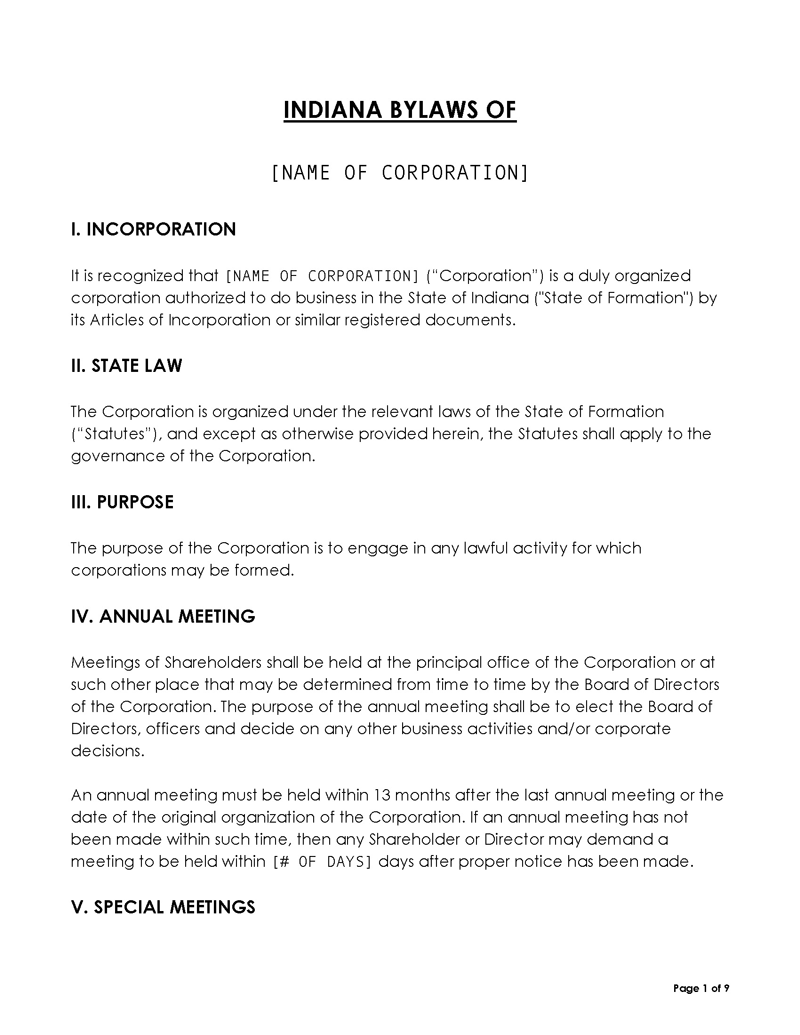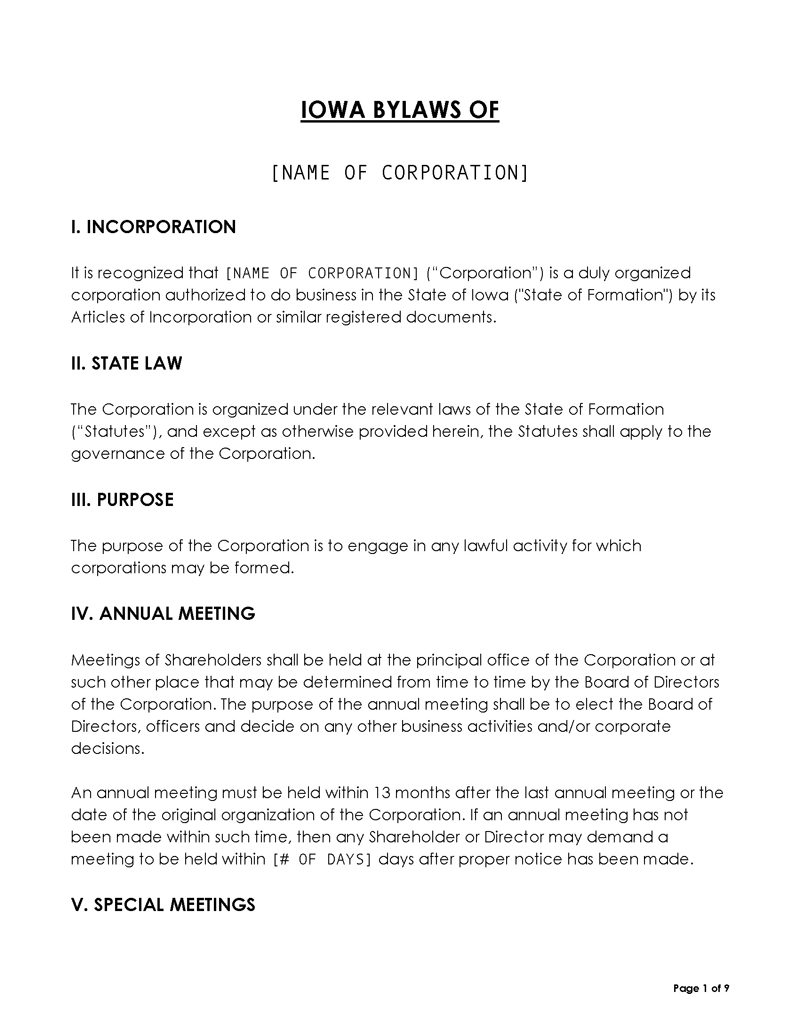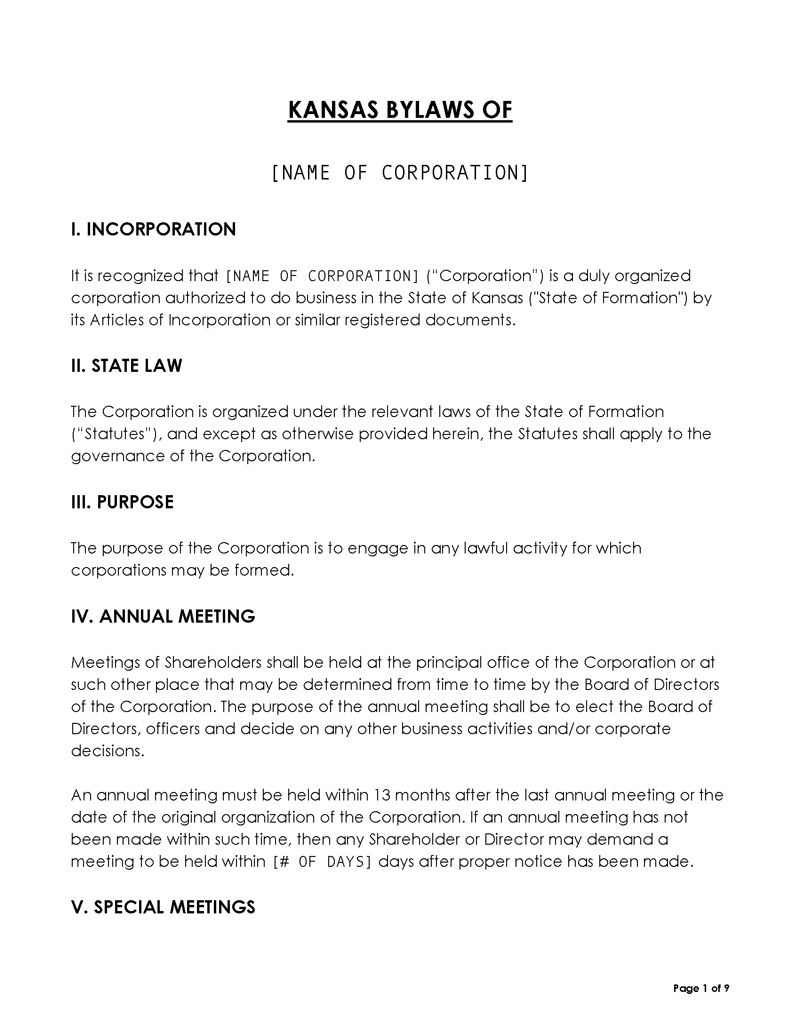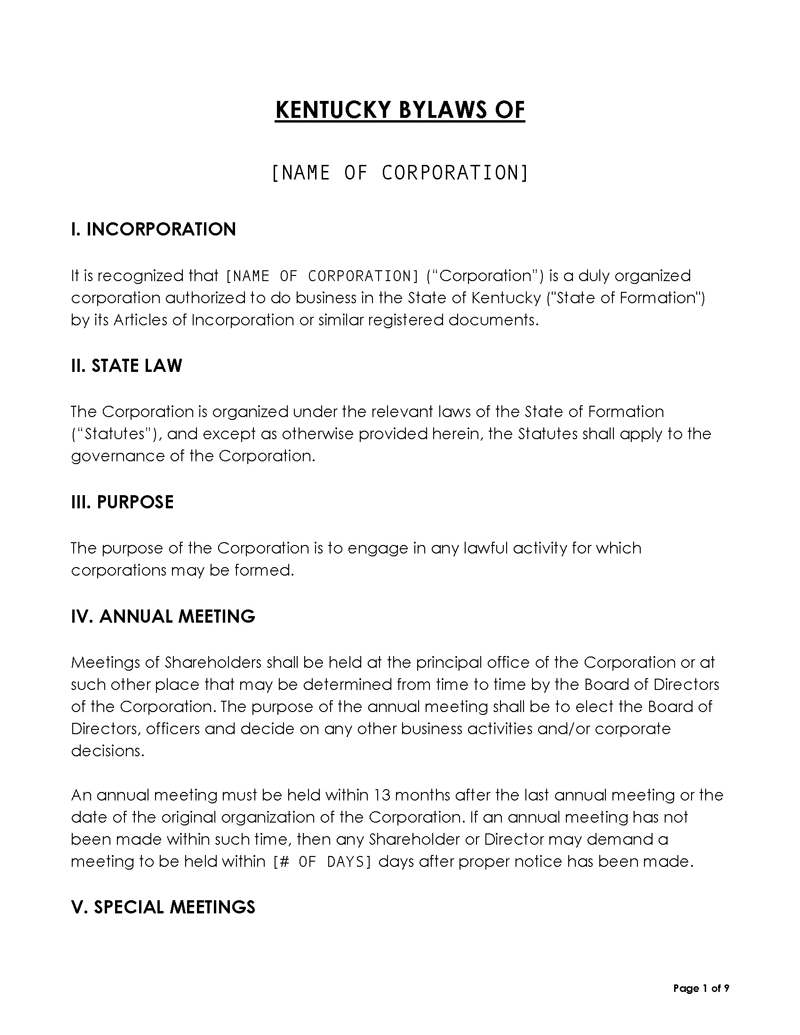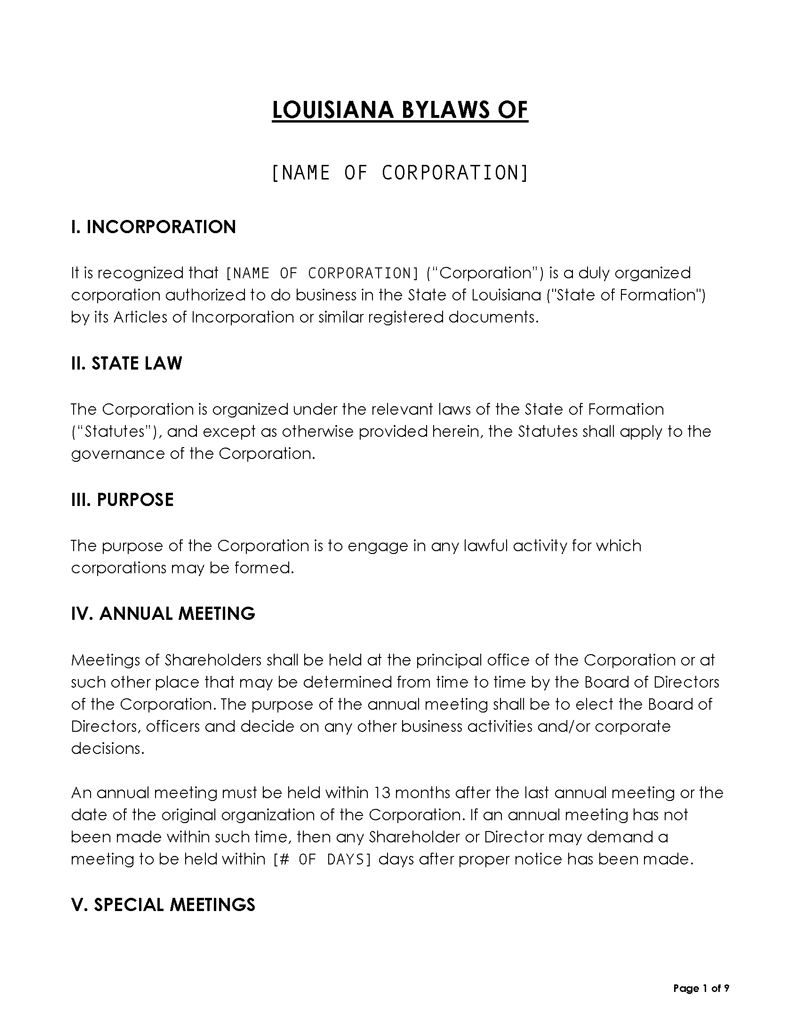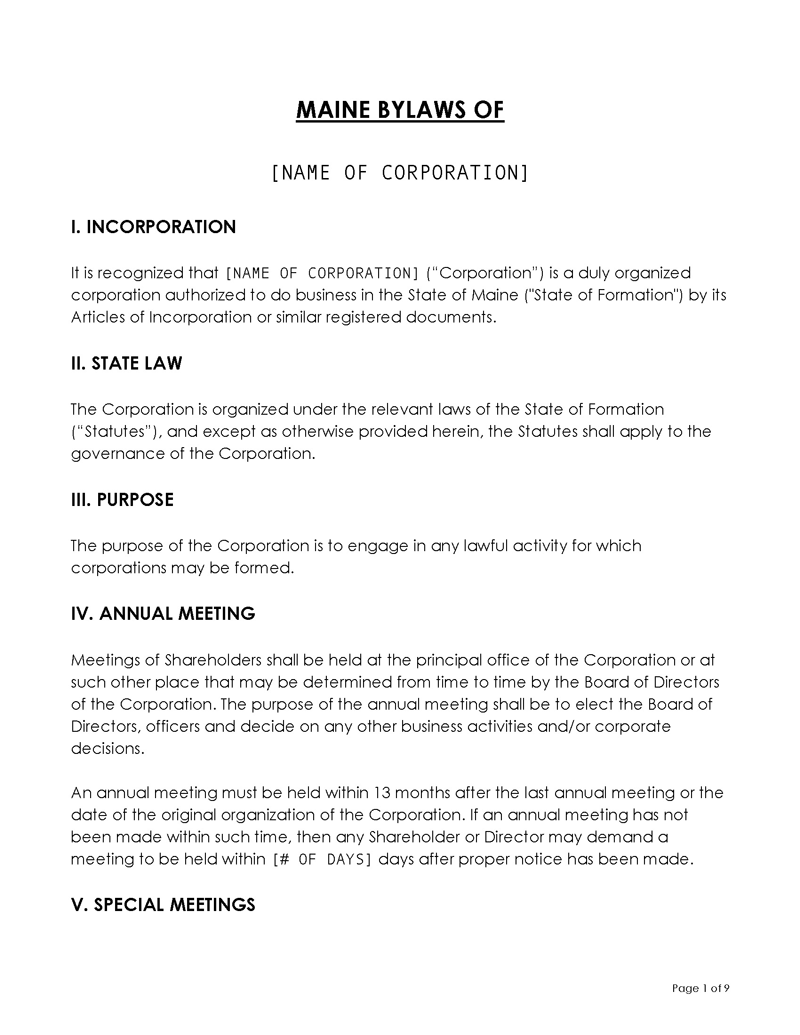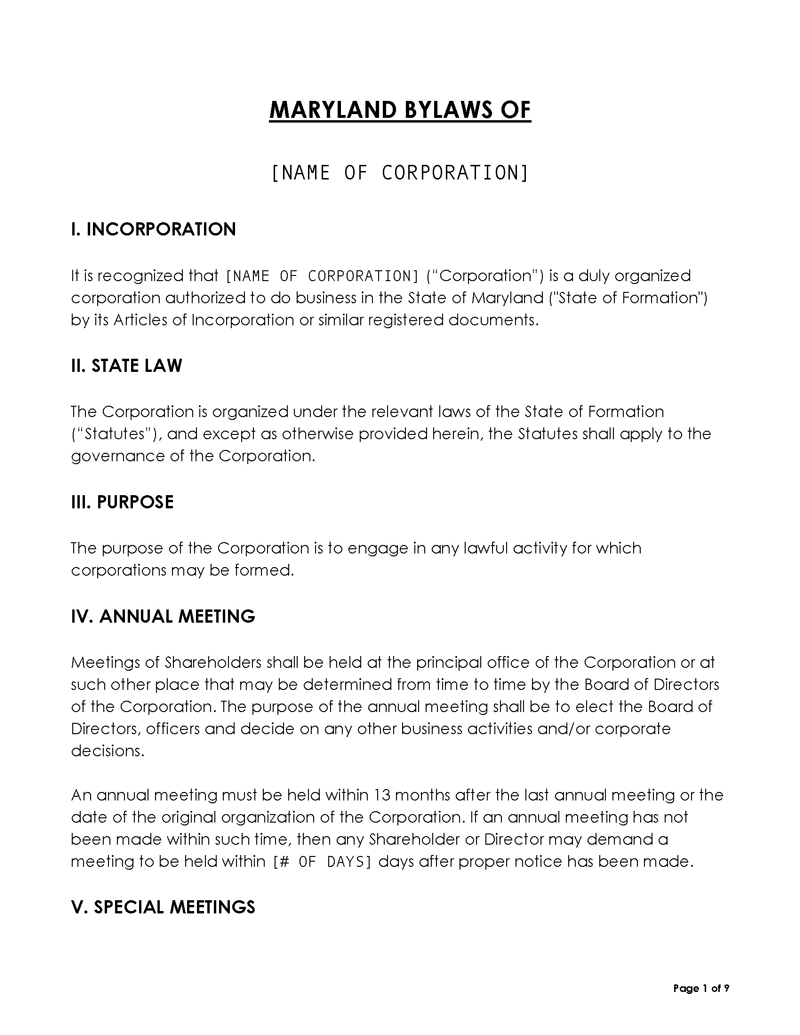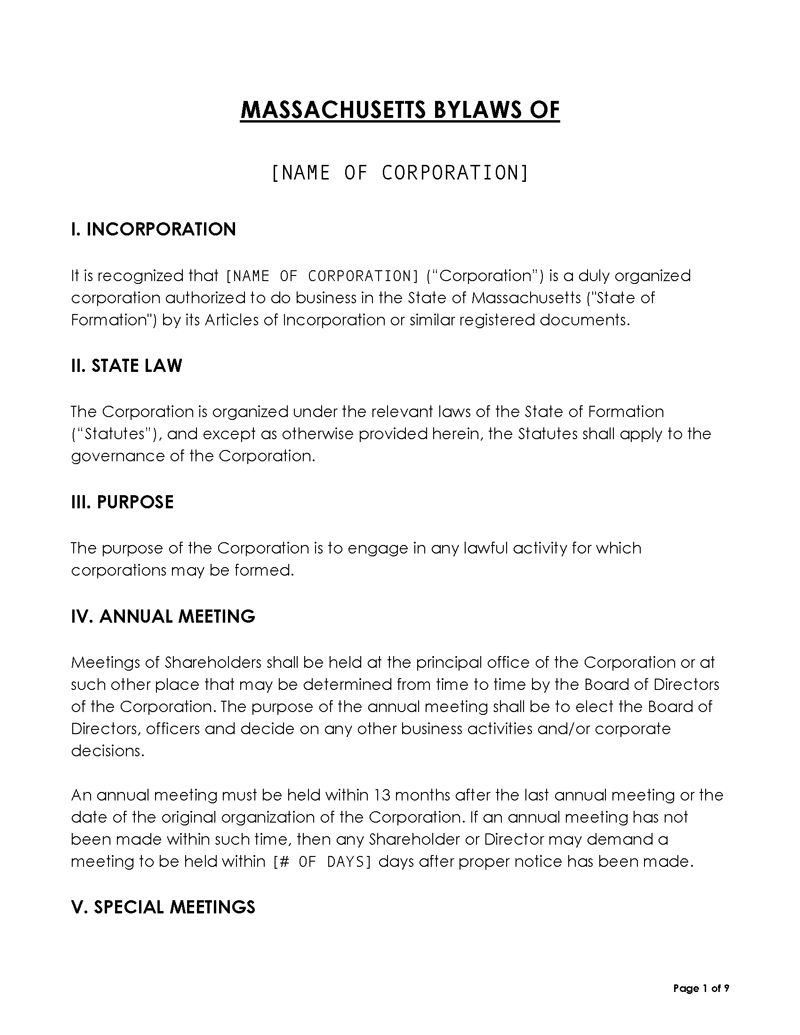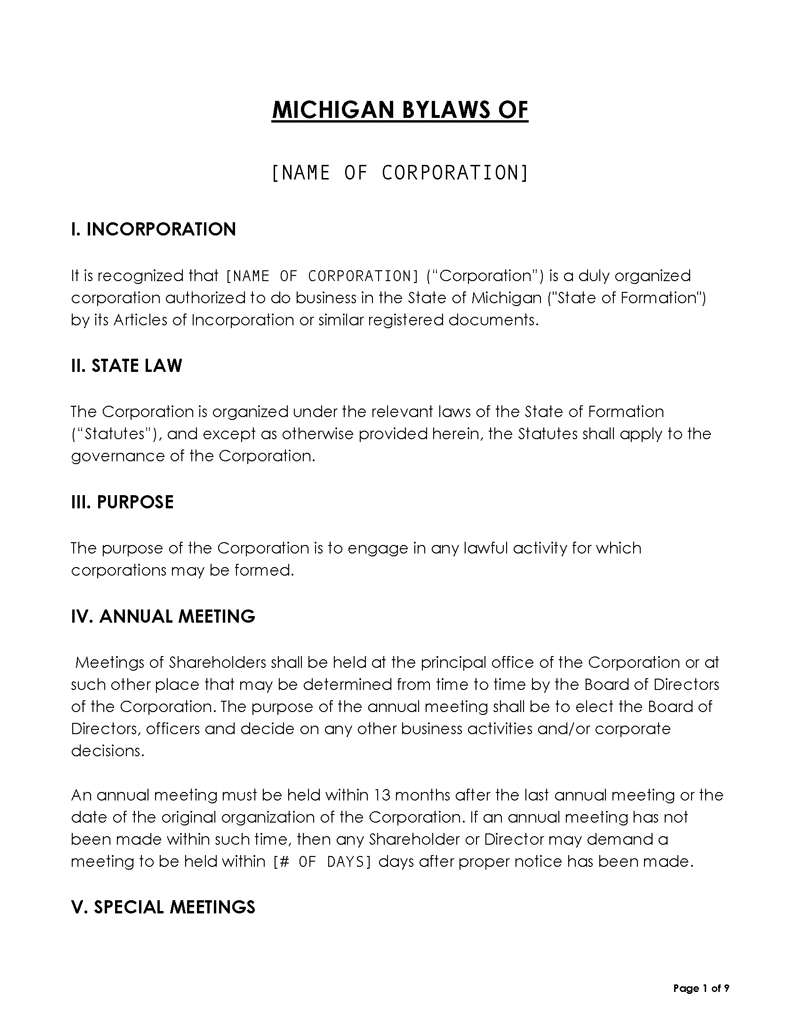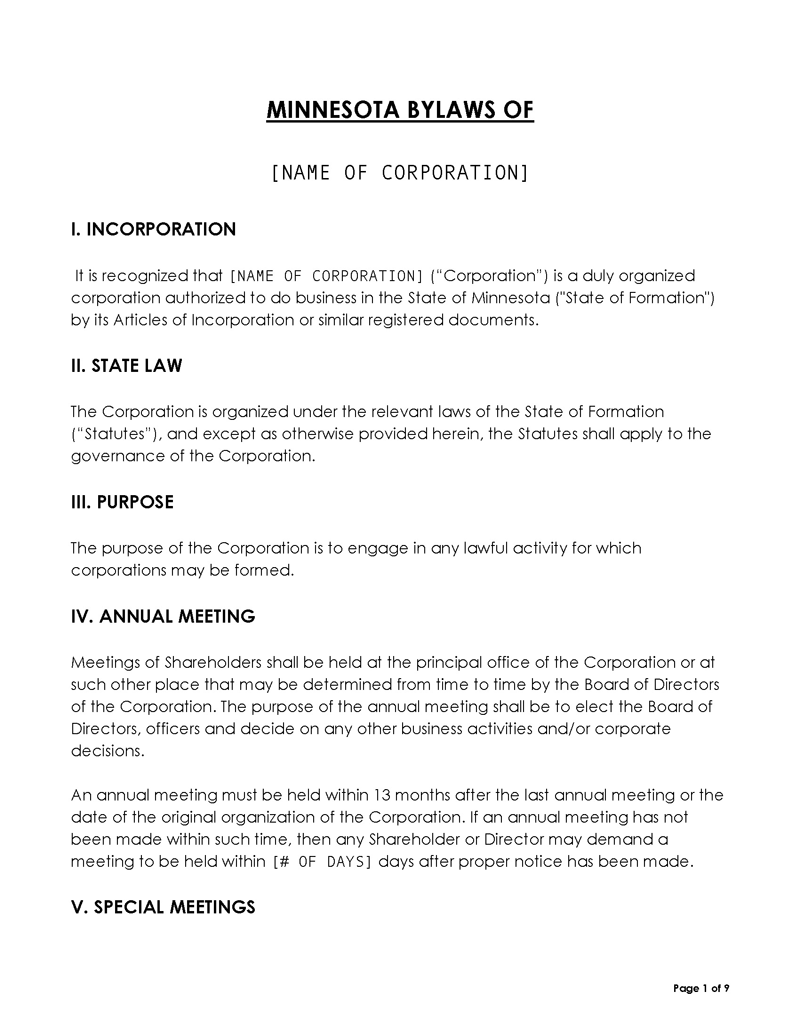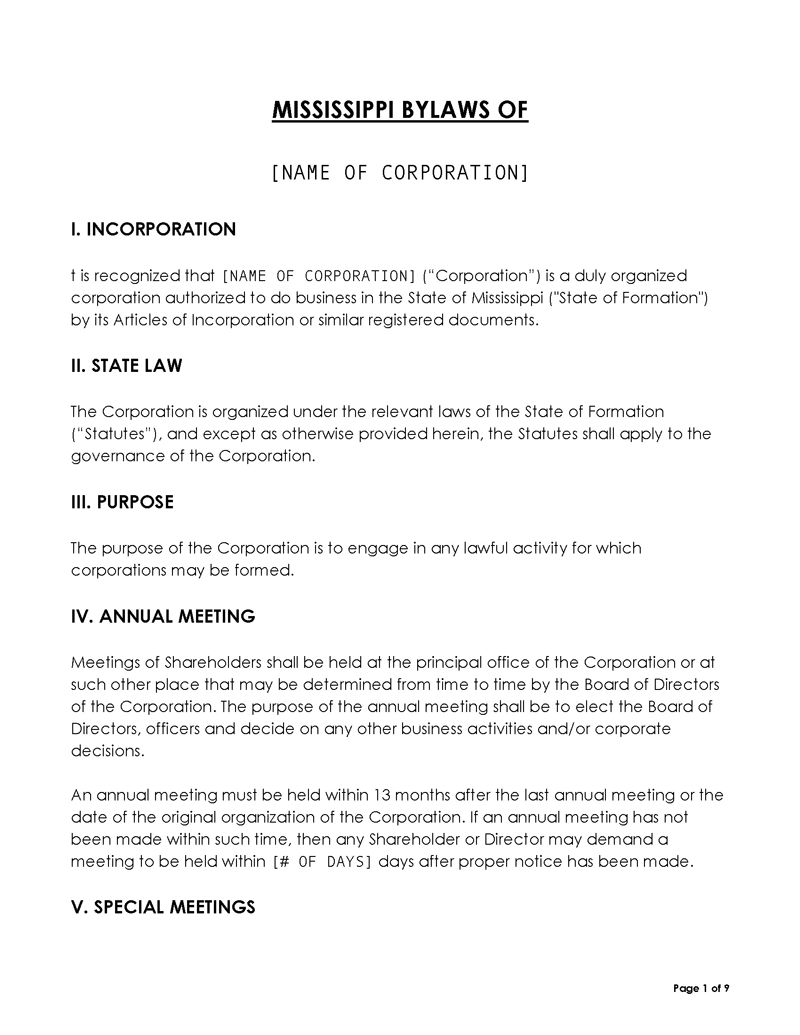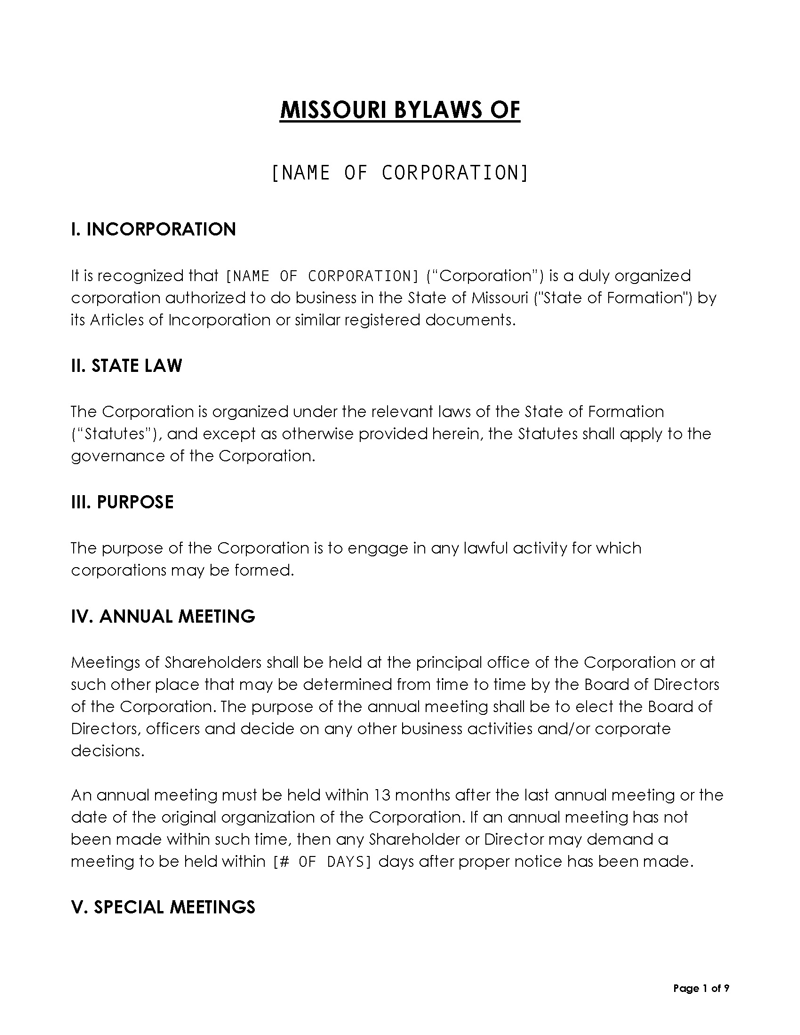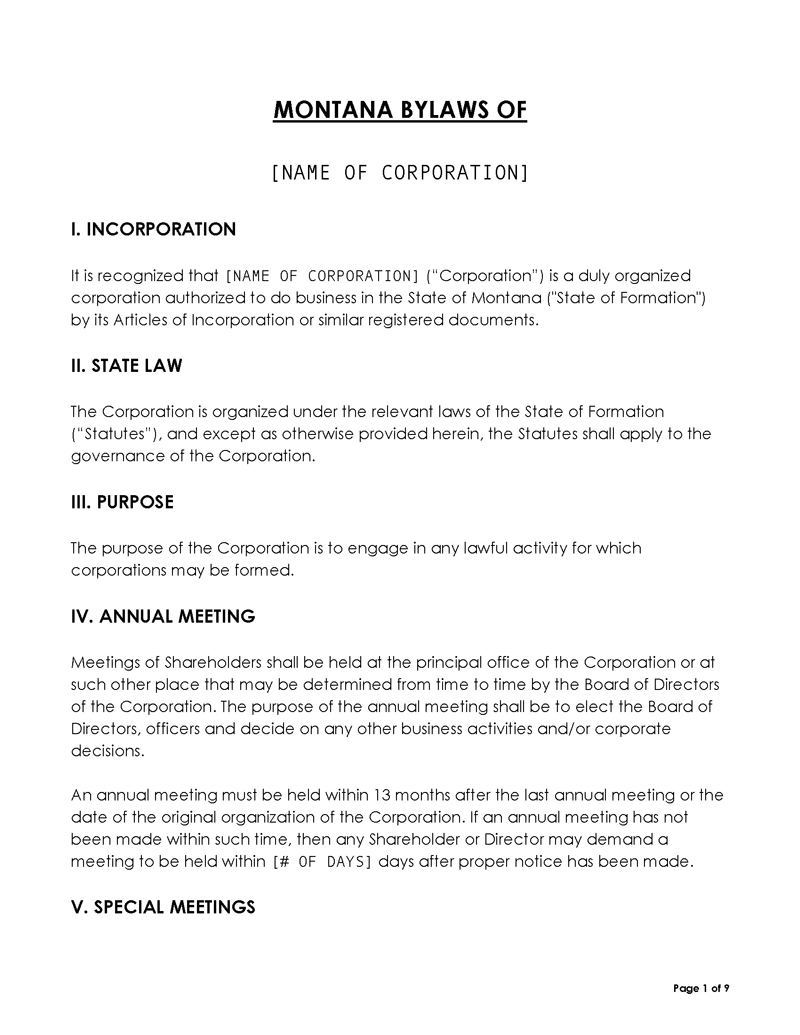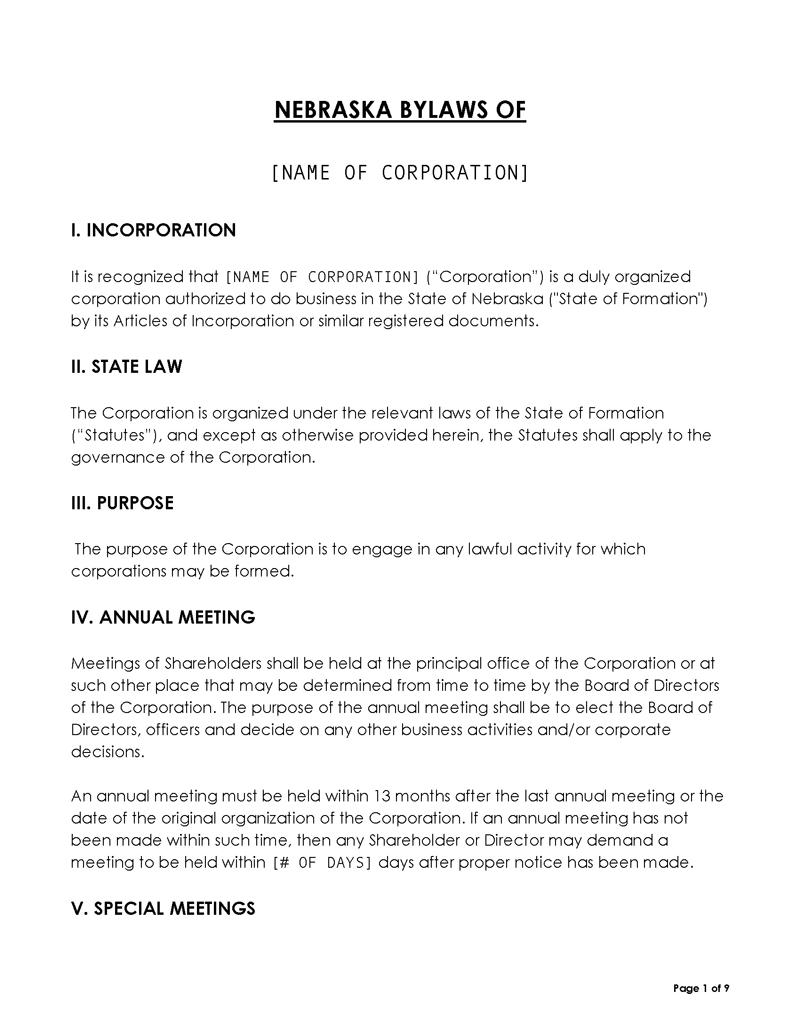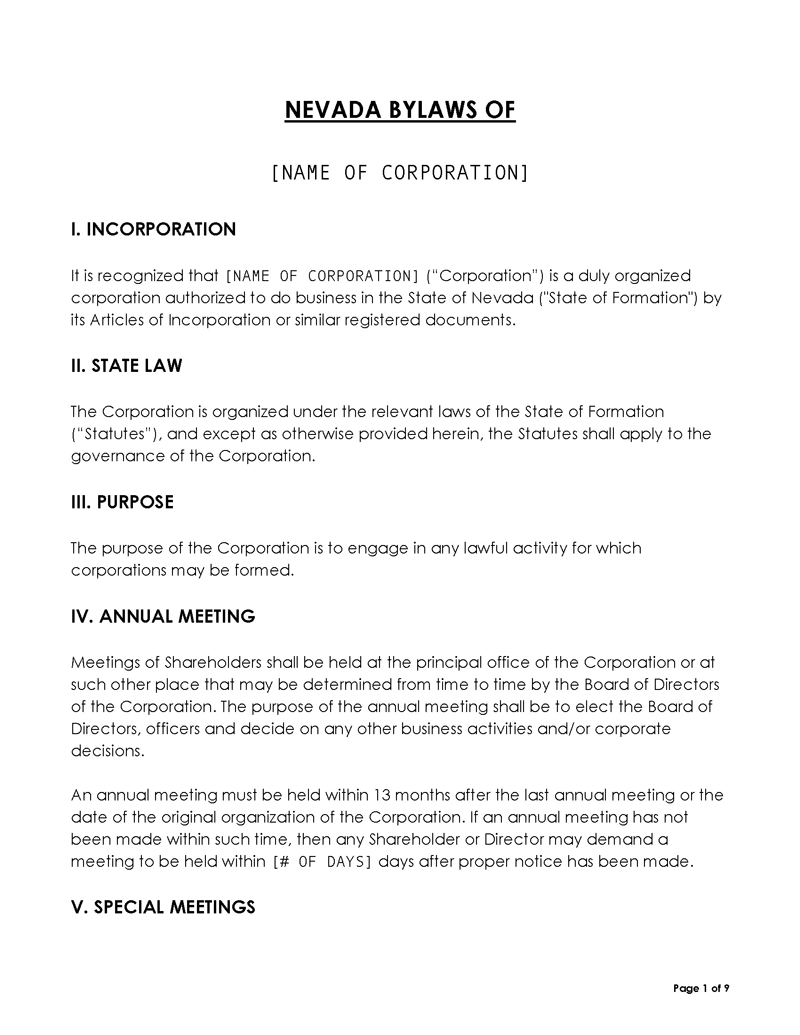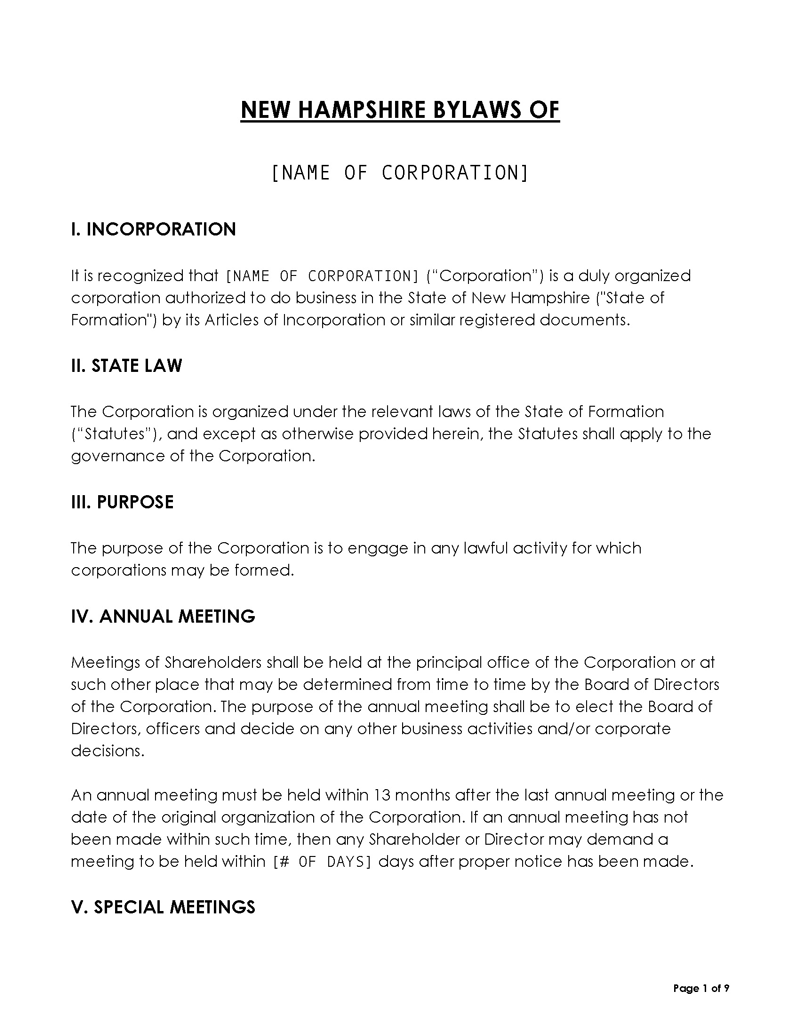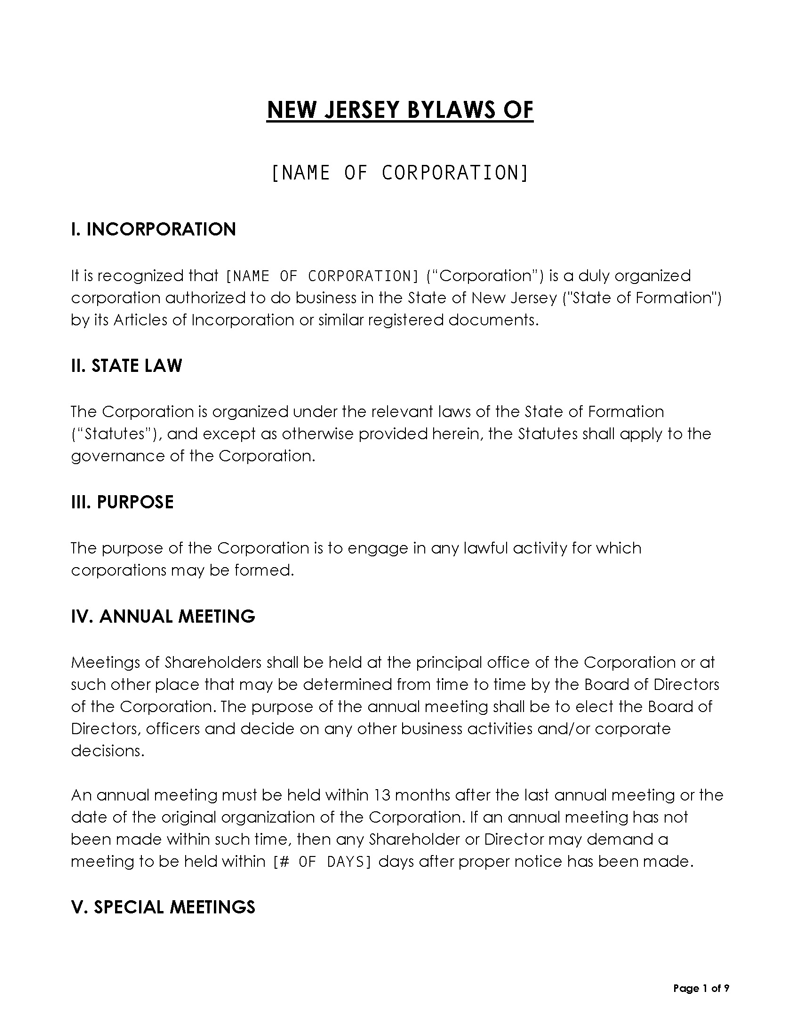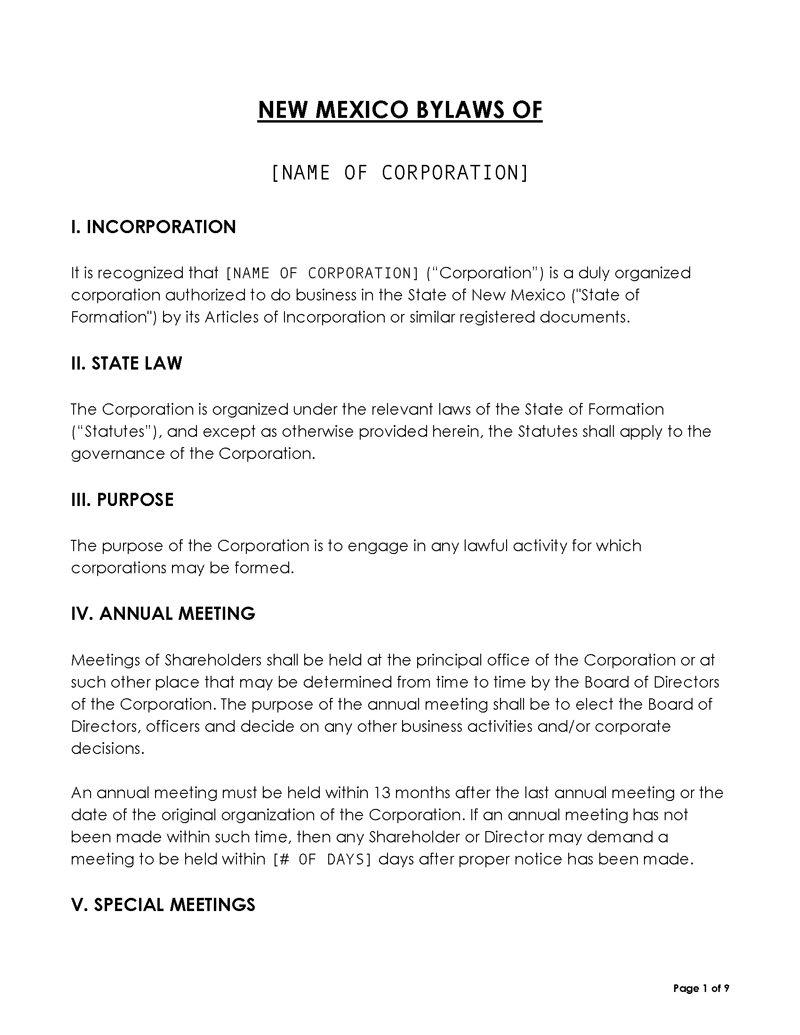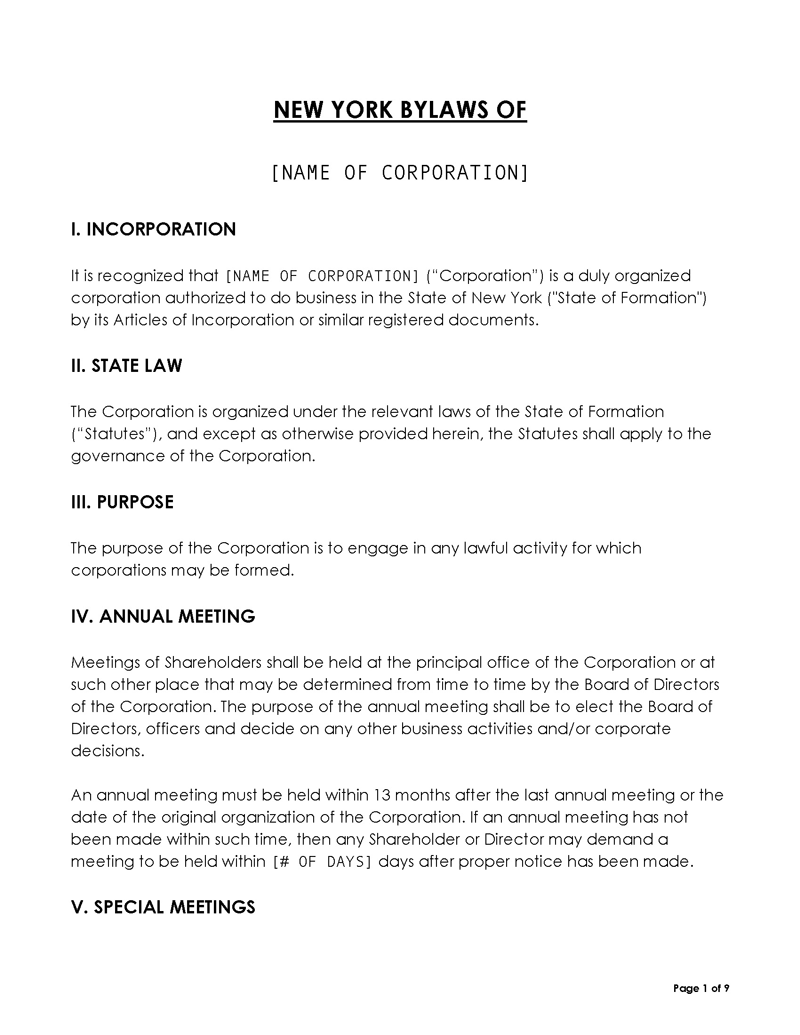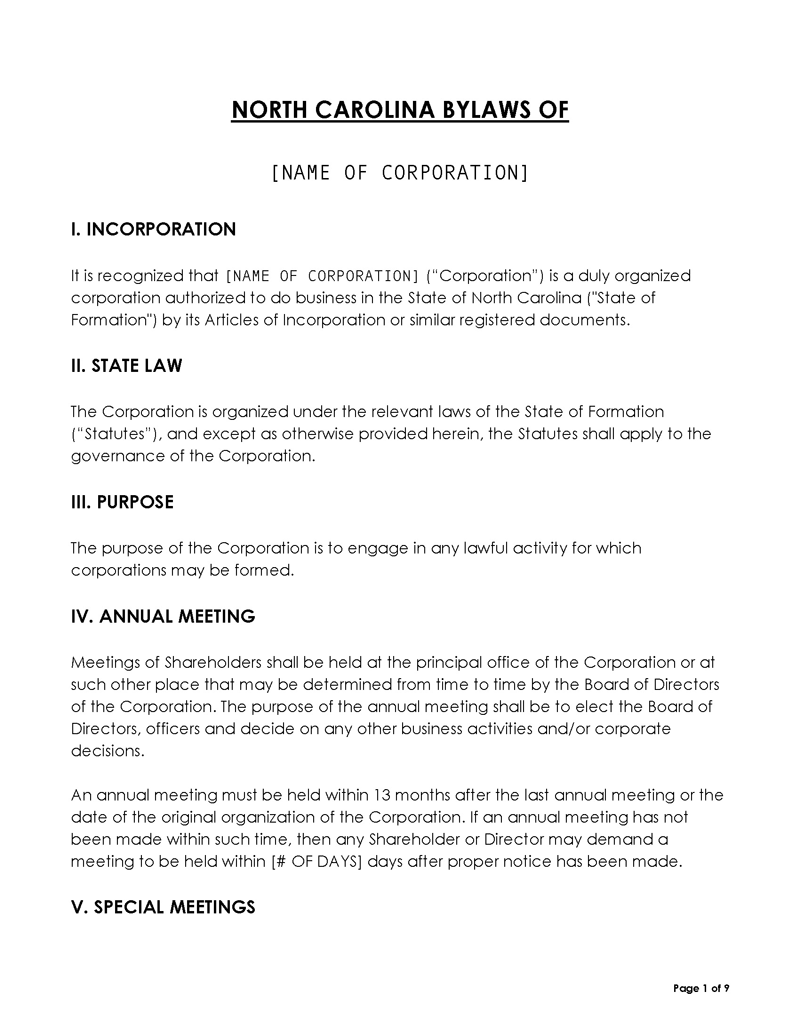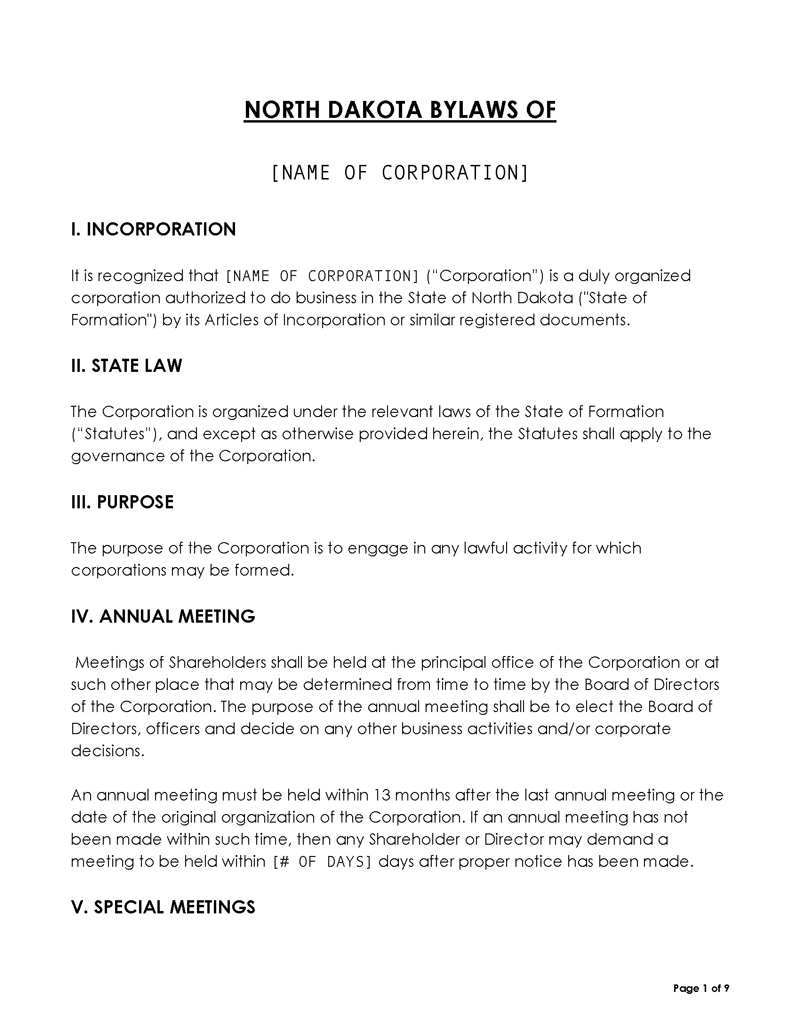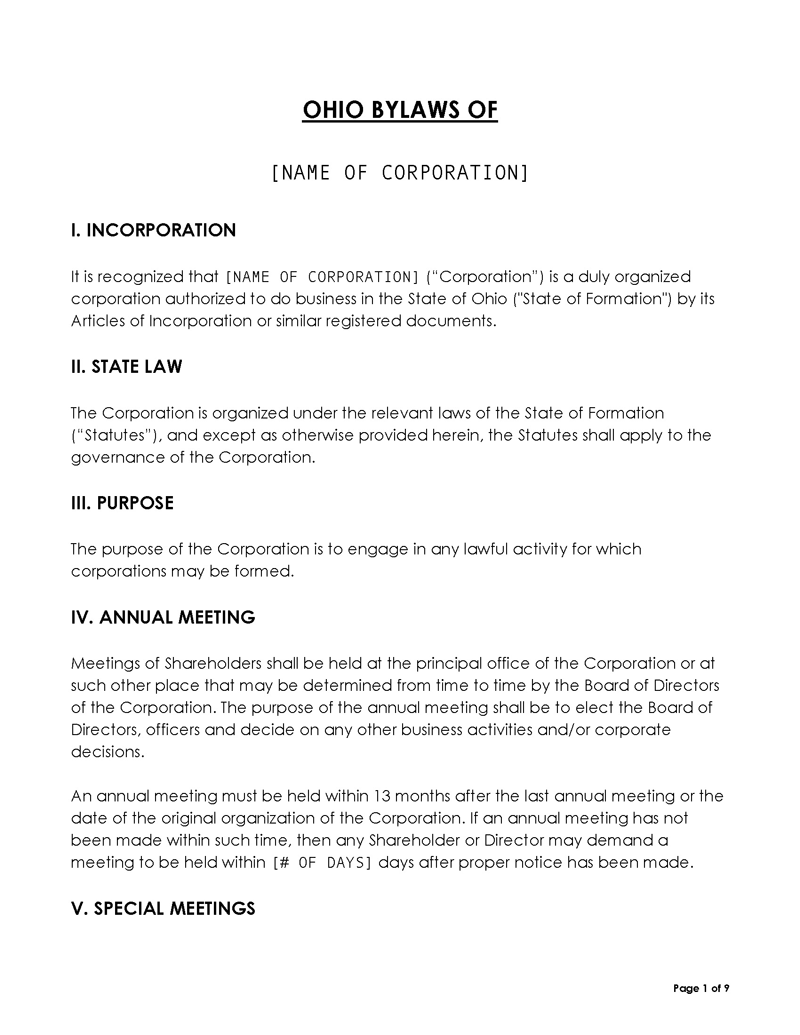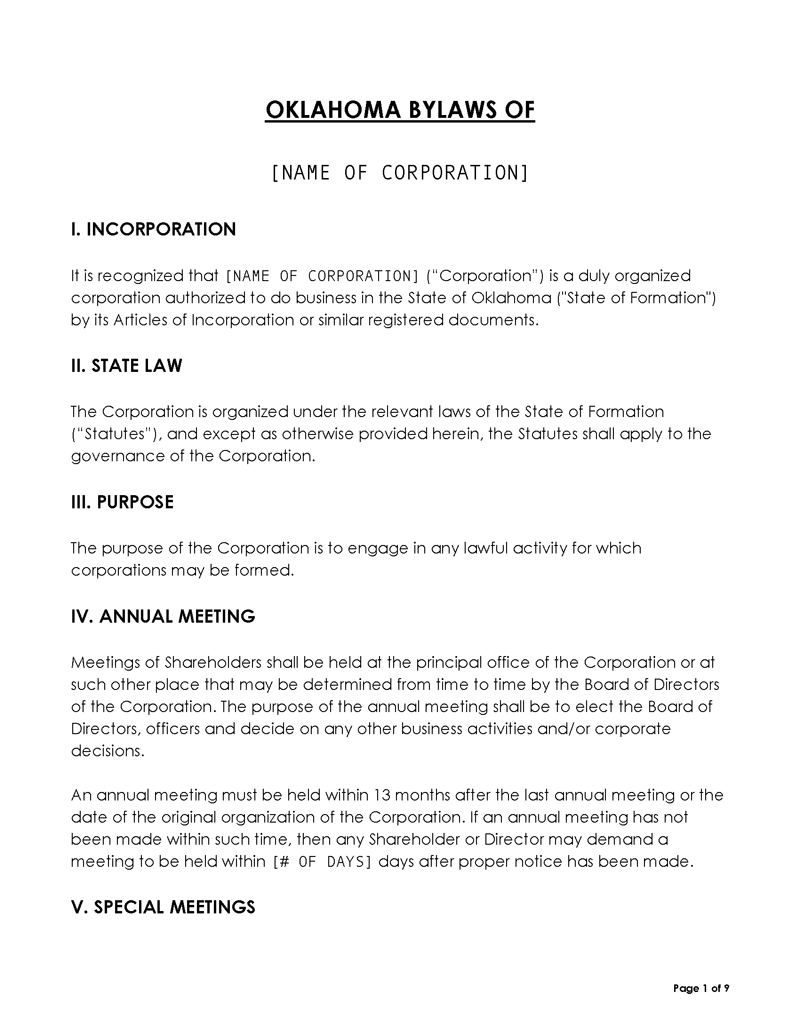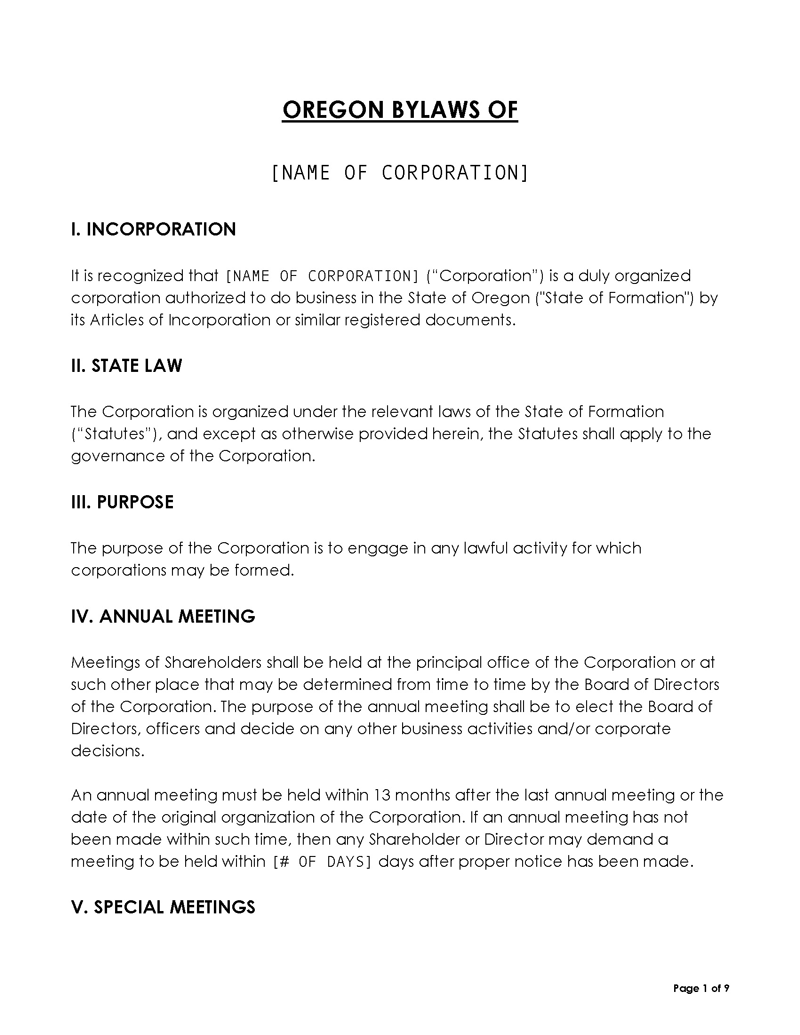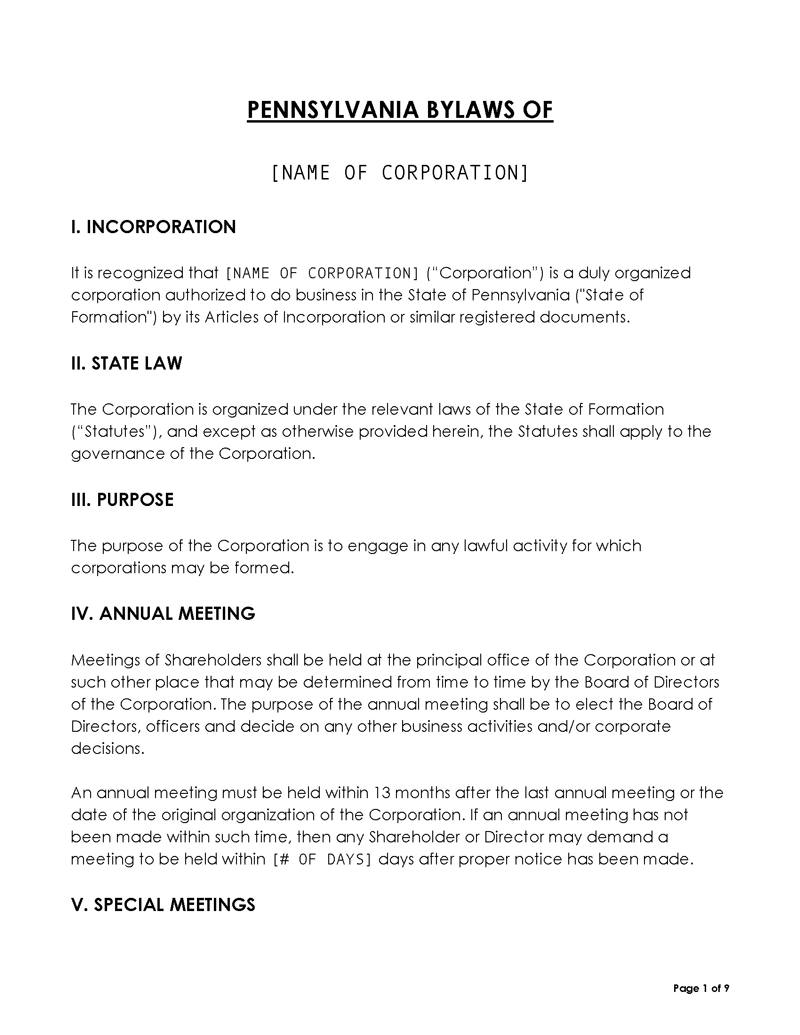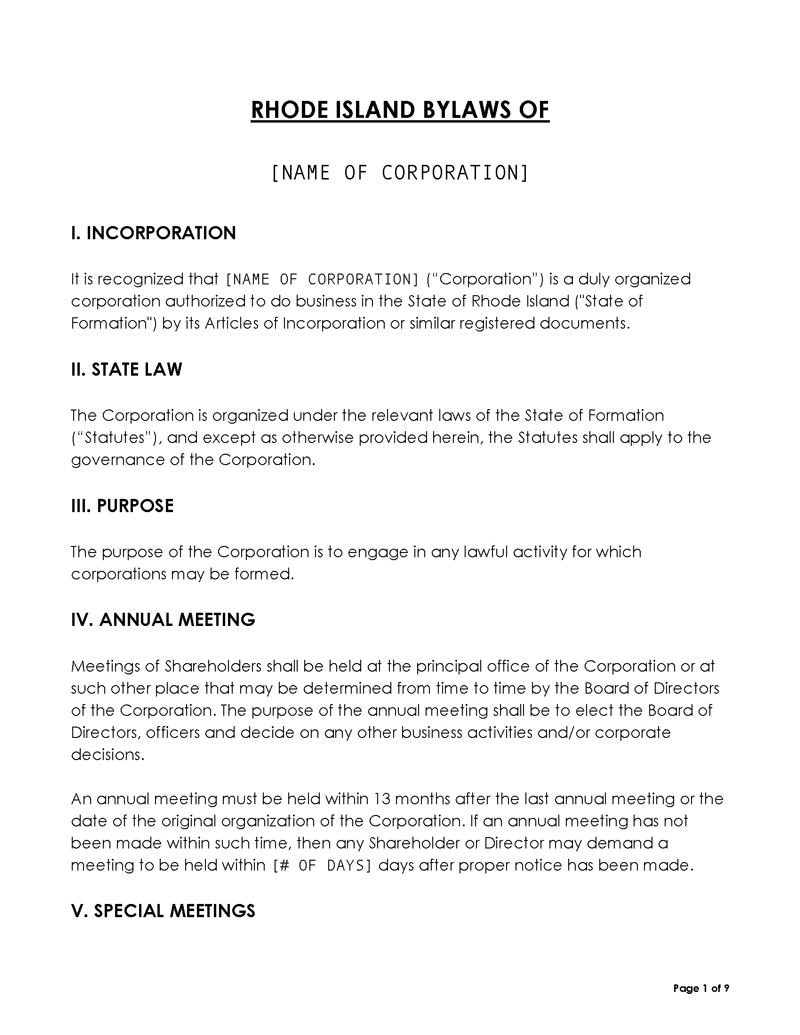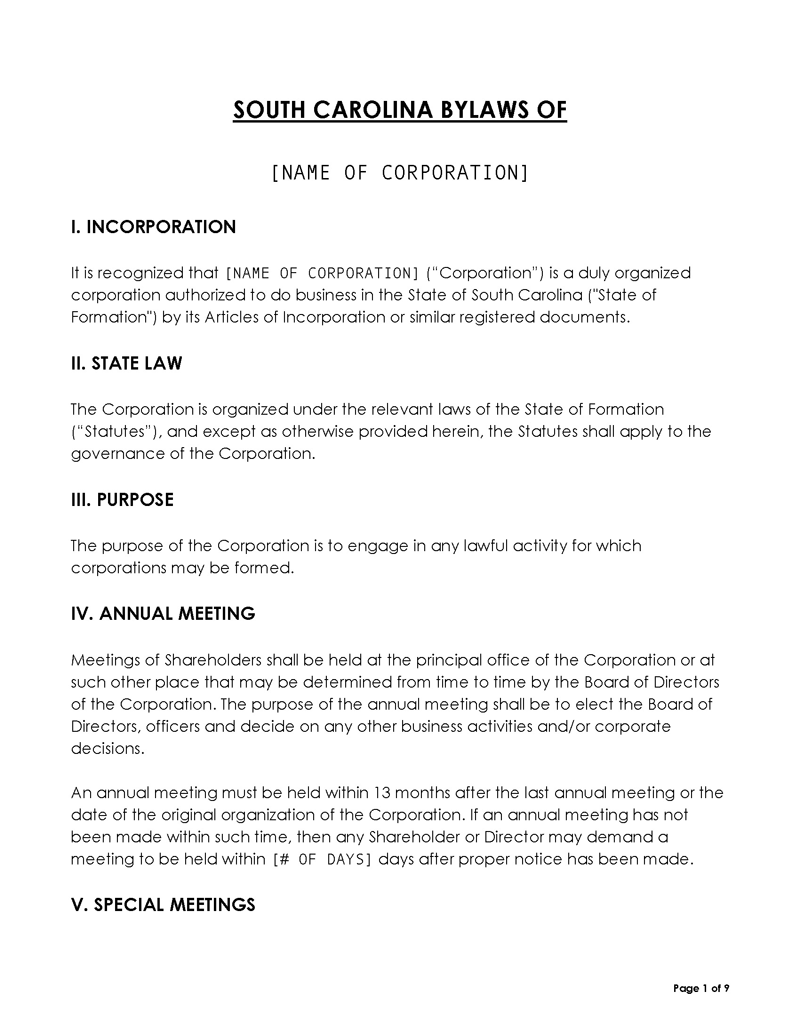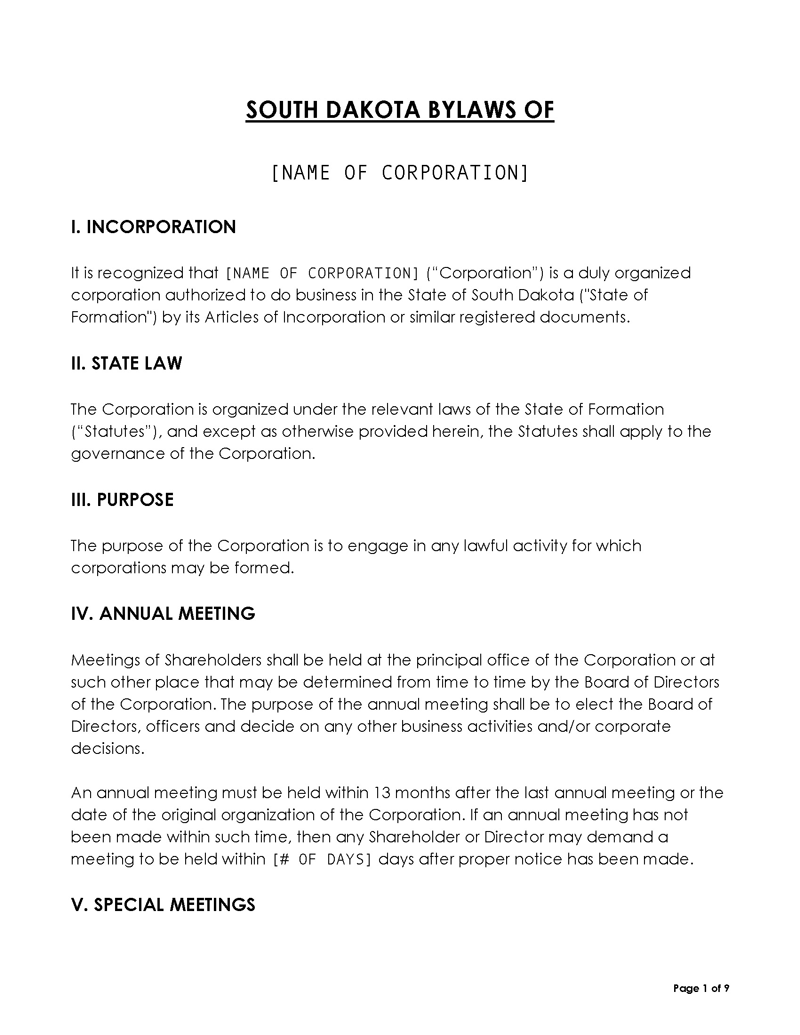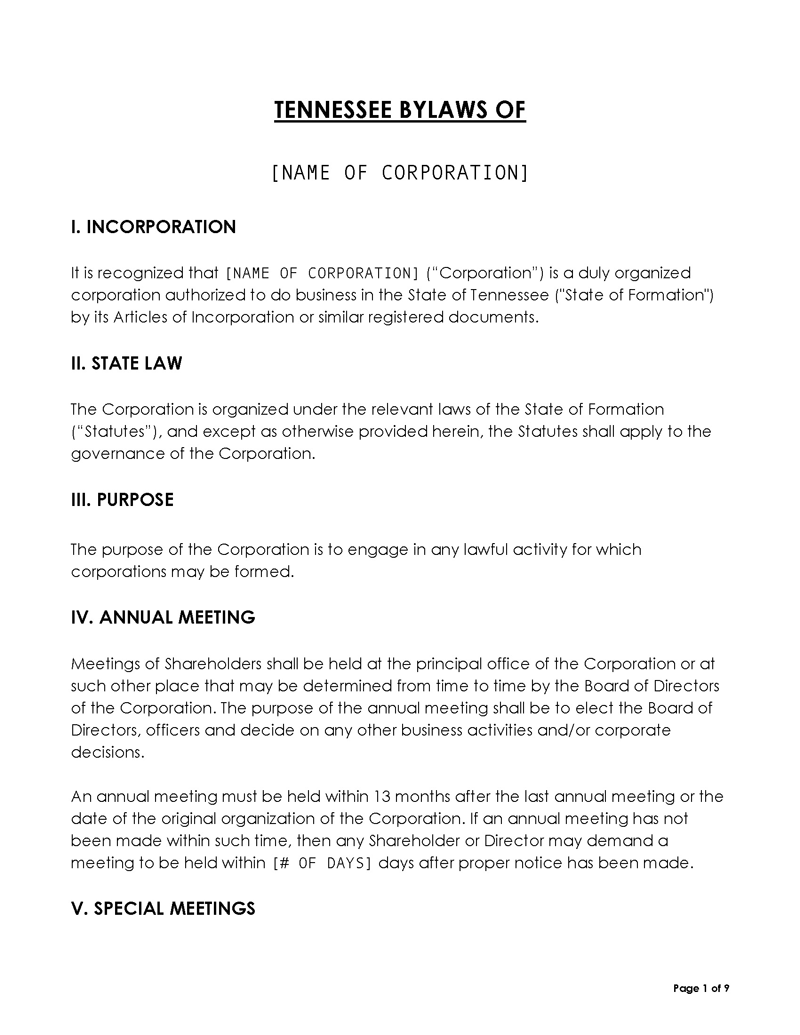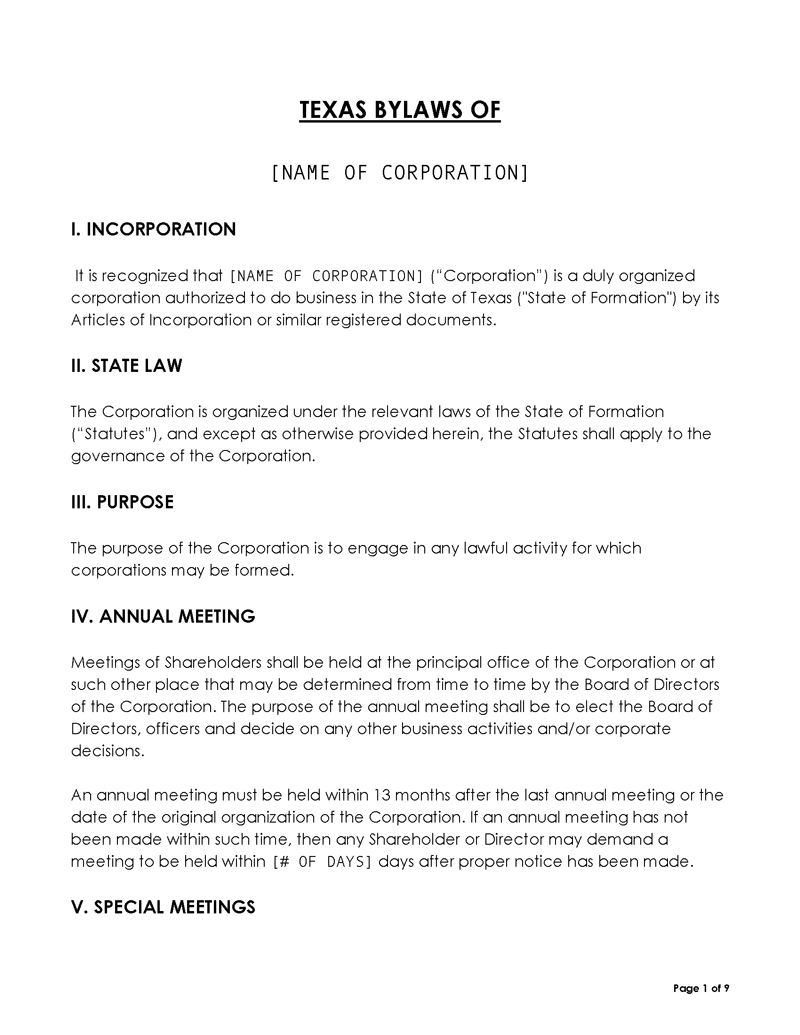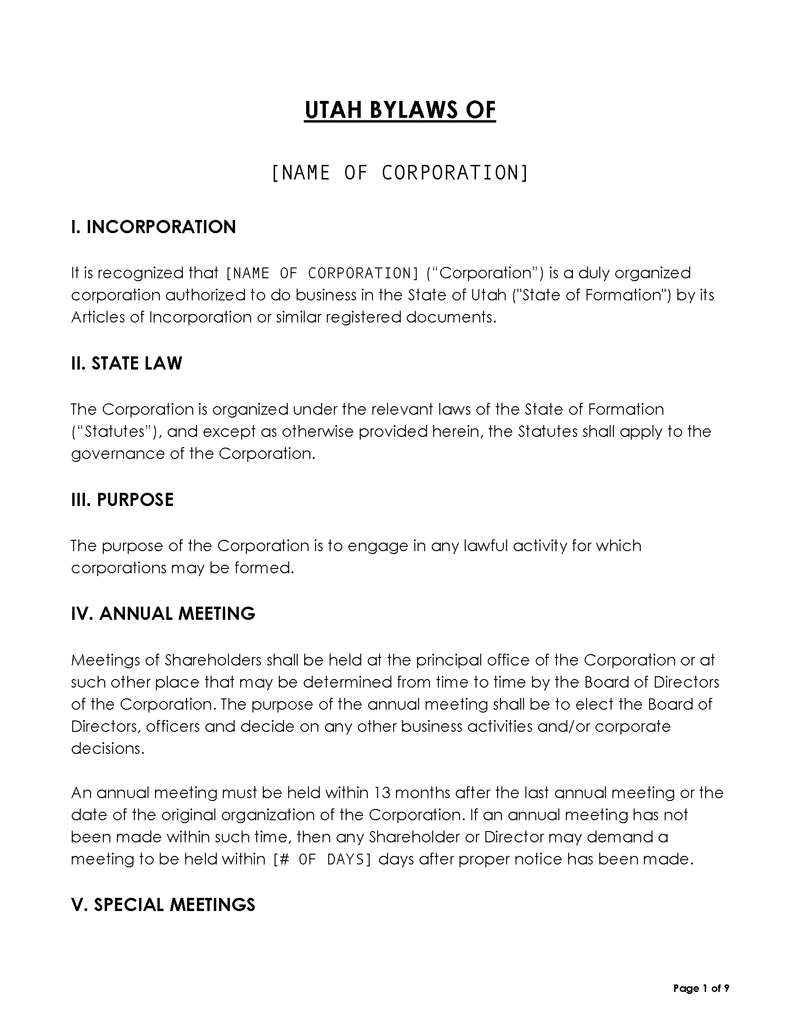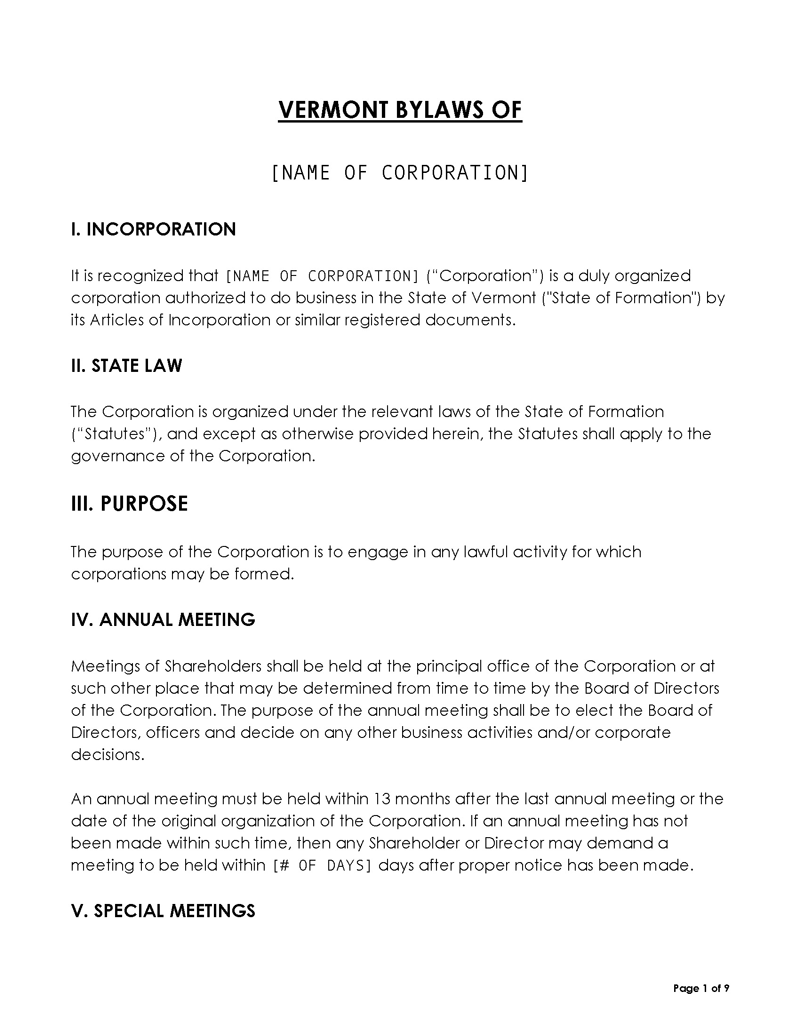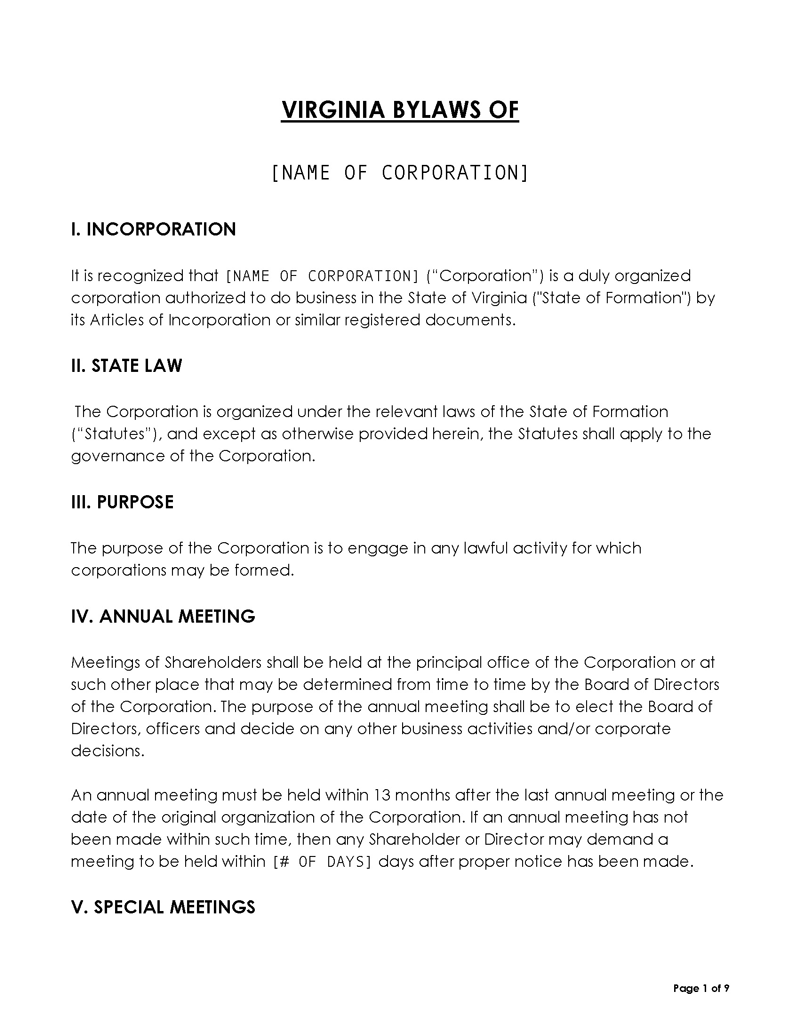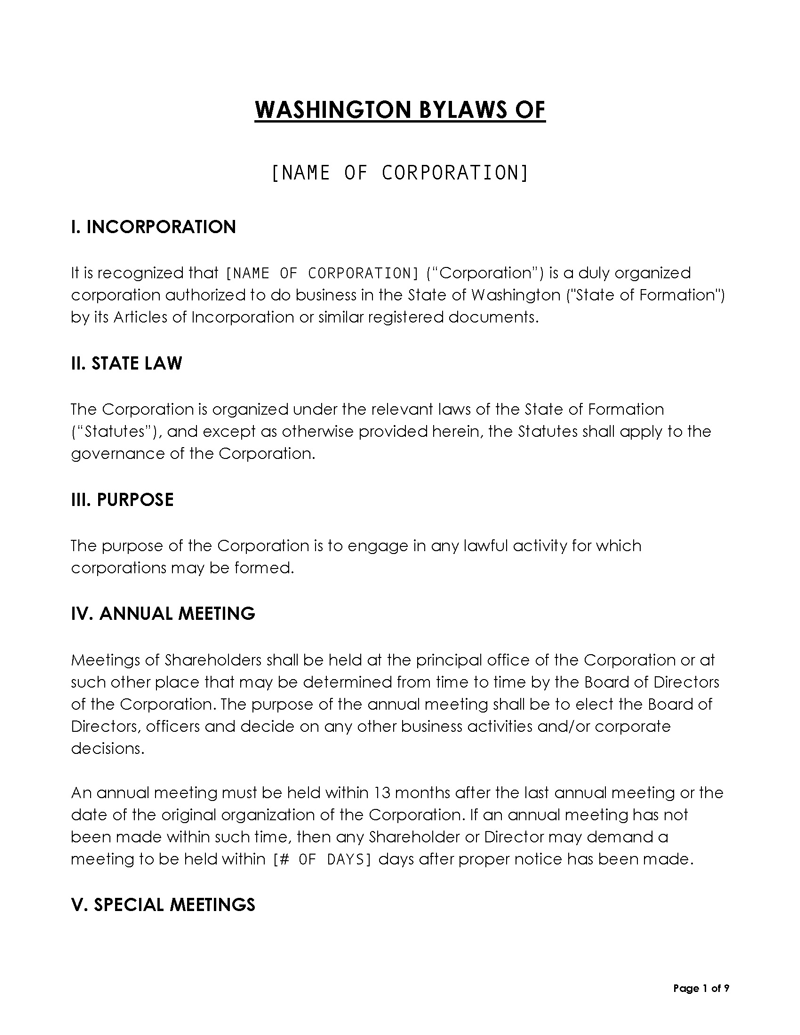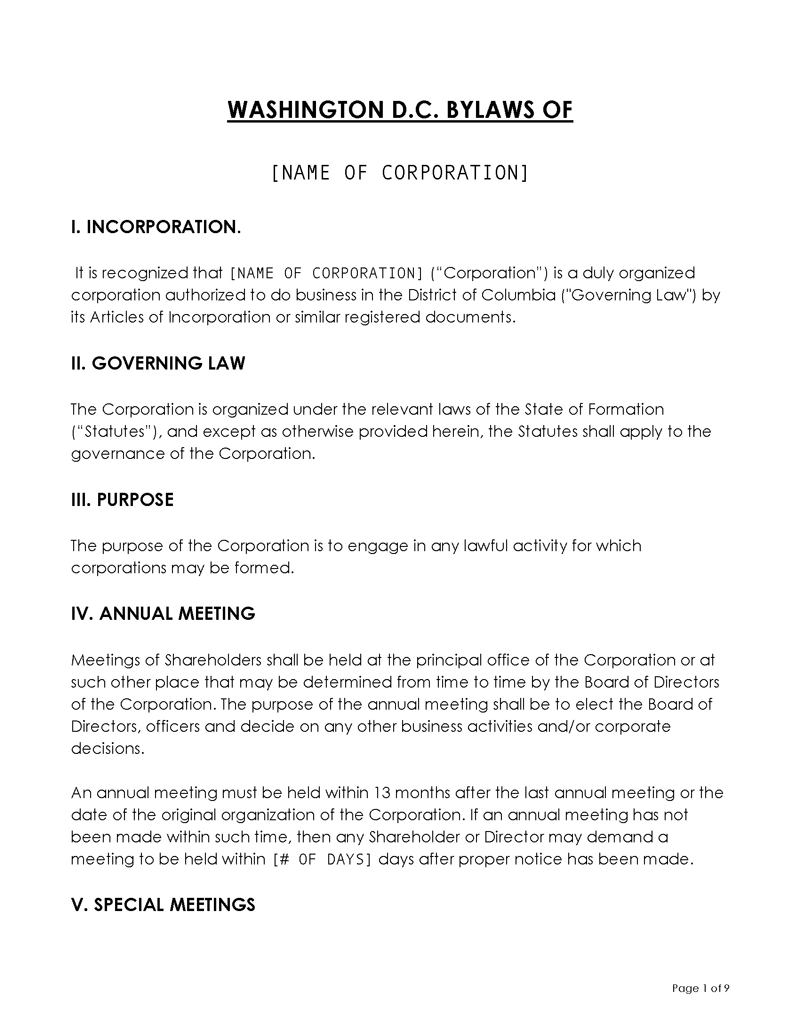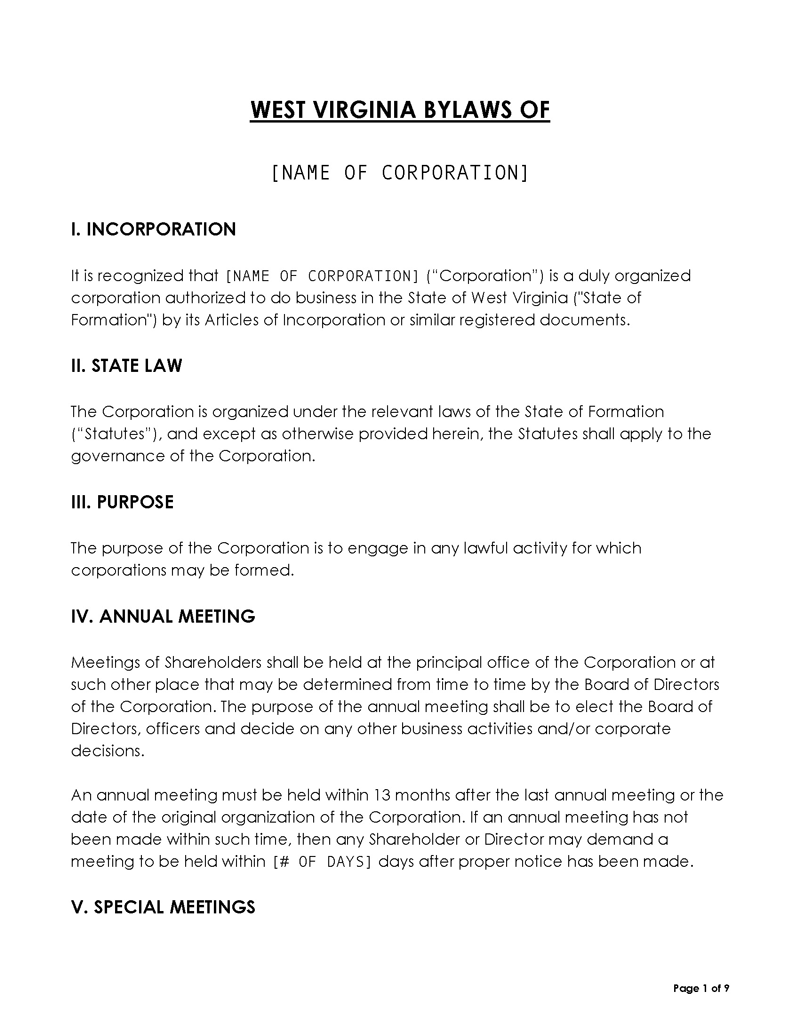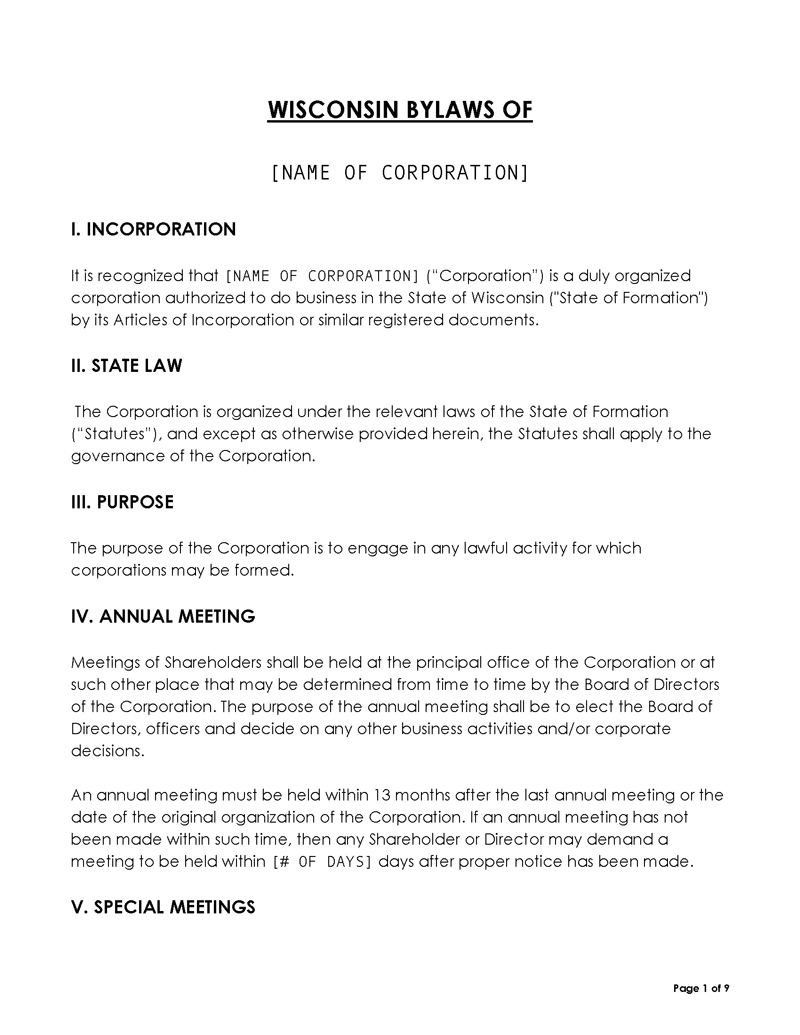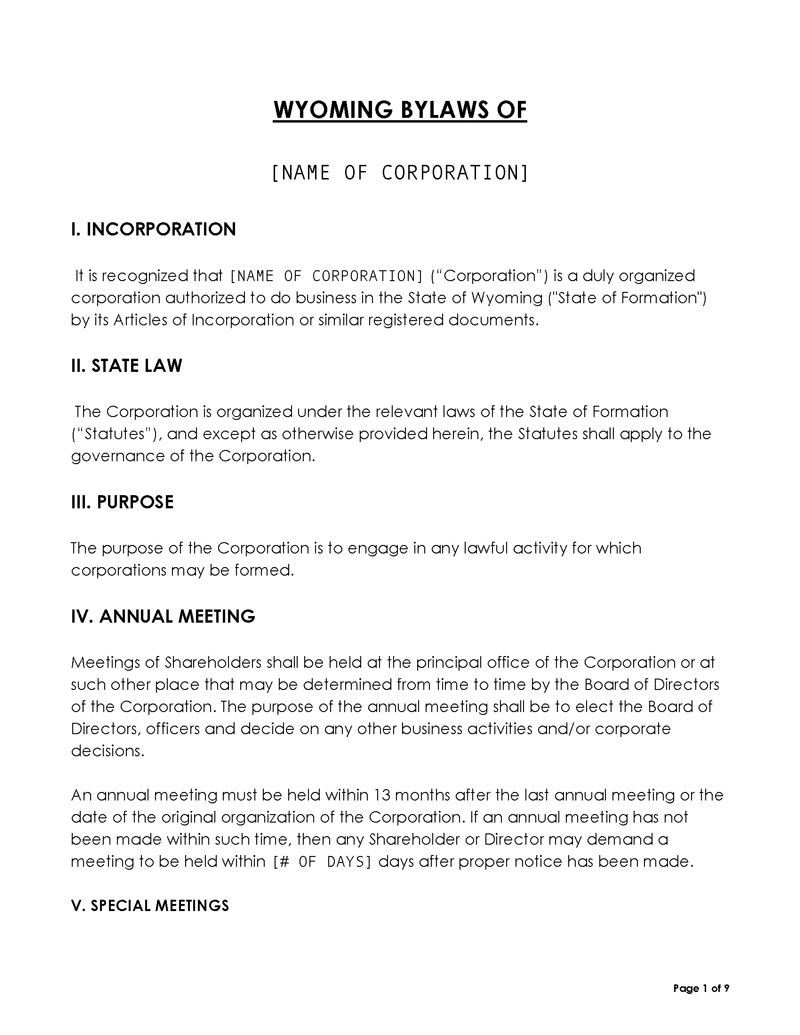When creating corporate bylaws, it is important to consider the purpose of your organization, the size and structure, and the needs of the members and shareholders. This article will expound on all the elements of standard state-recognized corporate bylaws, the business entities that use them, and a step-by-step process for drafting them. In addition, you will be provided templates that you can customize and use for free.
What are Bylaws
Bylaws are the rules or guiding principles set in place to regulate the practices in a system or society as well as govern its members.
Thus, they are documents that contain the guiding principles of managing a corporation or business, including how the board of directors carries out their duties, the ownership and shareholder structure, and the overall day-to-day affairs of the corporation.
It is a standard practice that when a corporation is formed, the board of directors works hand-in-hand with an attorney to write company bylaws that benefit the goals and mission of the business. If they are being prepared by a board of directors committee or another corporate director, they must be approved by the board and signed by officers responsible for the management of the corporation.
One of the most important aspects of this process is that the corporate bylaws you are preparing for your business or organization must meet state rules, procedures, and regulations. In addition, they must be accessible to the IRS and other entities that may need to audit your corporation’s records.
A typical company bylaws document should include the following elements:
- Name of corporation
- Board of directors
- Stock certificates
- What determines a quorum in your company
- Voting rights
- Date and time of annual meetings
- Committees
- Indemnification
- Other individuals (such as officers and members)
The major purposes of bylaws are: first, to serve as your business blueprint; and second, to prove the legitimacy of your business. The latter is especially important during a lawsuit when applying for loans or being involved in other corporate affairs, such as business partnerships. In addition, they show that your company has been following the state-required rules.
Free Template
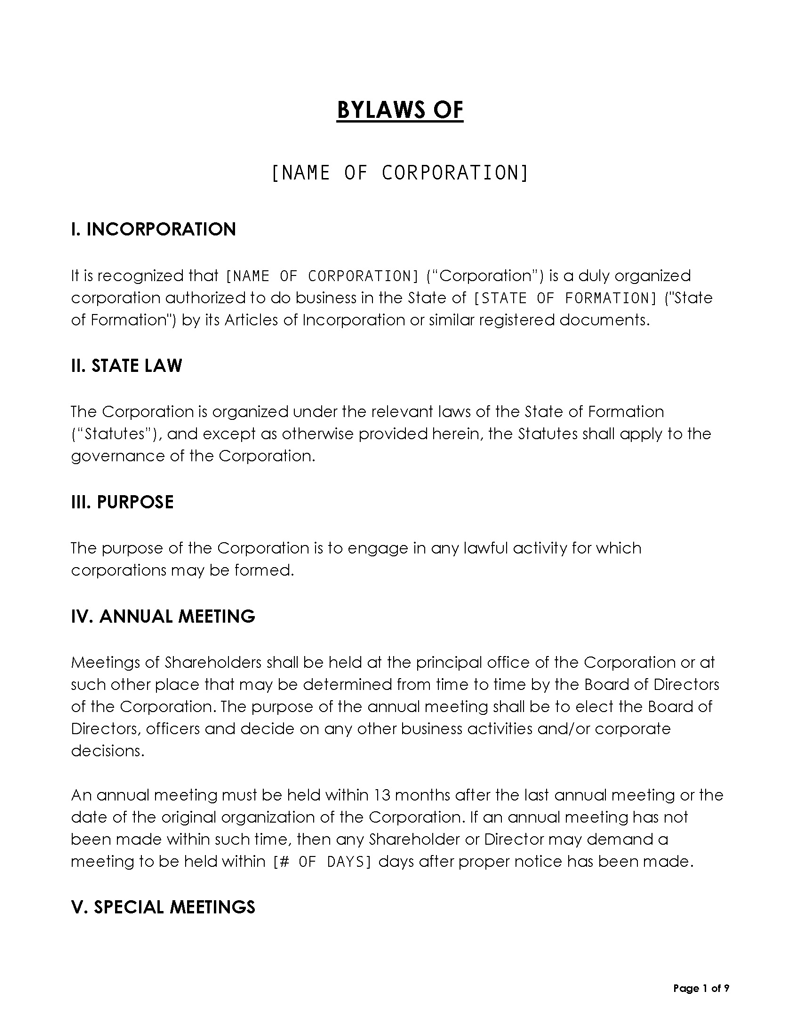
Bylaws Vs. Articles of Incorporation
Bylaws and articles of incorporation are different in several ways. First, articles of incorporation are documents that confirm and document the existence of your corporation. Information usually found in articles of incorporation is focused on the ‘about’ of your company or business entity. This includes the name of your corporation, the address with the name of the registered agent, the type of corporate structure, and the value and type of authorized shares.
On the contrary, bylaws go a step further to expound on your corporation’s work culture and business structure, including the election of directors, meeting arrangements, and business affairs.
In summary, they are more detailed on the internal affairs of the corporation, while articles of incorporation are short documents registered with your state during the process of forming your business.
Bylaws are important to both for-profit and non-profit corporations. However, they do not follow the same pattern. For example, for-profit corporations require higher registration fees and renewal fees; the profits accrued after expenses are distributed to the shareholders; salaries can have certain changes at any time; they should be registered with the state only; and lastly, employees are being paid.
For non-profit corporations, there will be lower registration and renewal fees; profits accrued after expenses are meant to be for a “worthy or charitable cause”, and salaries must be stipulated at the beginning of the year. Unlike for-profit corporations that get registered at the state level, non-profit corporations should be registered at the state and federal levels, and employees are mostly volunteers.
Business Entities Using Corporate Bylaws
Bylaws are not required in every state, but it is advised that your company have them in order to prepare for business transactions or legal disputes. Below are the different business entities that require them:
C corporations
When your company or business gets incorporated as a C corporation, this implies that your business exists independently from its owners (you and other shareholders), meaning that your company can enter into contracts, own property, and sue or be sued in its own name. This independence also brings significant tax advantages, as a C corporation is taxed on its own, separately from its shareholders.
Similarly, profits and losses will be retained independently. In addition, the C corporation can offer shareholders limited liability protection, meaning that the shareholders are not personally responsible for the debts and liabilities of the company. As a result, the C corporation is the most popular choice for businesses looking to incorporate. C corporations are considered the default standard for corporations by the IRS.
S corporations
The term “S corporation” refers to a business entity that is taxed as a corporation but which has made an election to be treated as a “small business corporation” for tax purposes. S corporations are subject to the same corporate bylaw requirements as C corporations, and their company bylaws are state-mandated with management rules structured to shield the shareholders and the board of directors from liabilities.
Limited liability company (LLC)
An LLC does not need to have bylaws. An LLC, or limited liability company, is a type of business structure that offers its owners personal liability protection, called the LLC operating agreement. Some states do require this LLC operating agreement, while others do not. This document is similar to bylaws as it outlines how the LLC will be organized and operated. It also spells out the members’ responsibilities.
Even though bylaws documents and LLC operating agreements have different names, LLC operating agreements are equally legally binding documents that protect business owners and interests. Having an LLC operating agreement in place can help prevent disagreements and ensure that everyone is in agreement regarding business activities in your company.
Step-by-Step Process for Creating Bylaws
While every company is different, there are basic steps that should be followed when creating bylaws for any corporation. The process of creating bylaws involves initial incorporators of the new business entity meeting to come up with an agreement concerning all aspects of business engagement, such as decision-making rules and when annual meetings will be slated. The responsibilities of initial incorporators include filling out the entire paperwork and getting them signed.
The following steps should be followed:
Step 1: Gather the incorporators
Most states require that two-thirds of shareholders and incorporators of a new corporation must assemble to appoint eligible leaders who will head the corporation and manage all its corporate affairs.
Step 2: Choose your board of directors
Shareholders who hold the majority of shares get nominated to be on the board of directors. Also, one of the board members gets appointed as chairperson. This individual gets the power to control and manage the board meetings. For any annual meeting to exist, a minimum number of board members must attend the meeting.
The board of directors is the supreme governing body of your company. Its primary function is to oversee the company’s management and ensure that the company is being run in a manner that is consistent with the best interests of the shareholders and the overall goal of the company. The board of directors is usually composed of individuals with a favorable range of experience and expertise, which makes them capable of providing valuable insights and guidance to management.
Step 3: Create rules for the entity
After the directors have been appointed, they can start deliberating on the rules for the business entity.
The rules will touch on aspects such as:
- The business’ decision-making process
- The scheduled time and location of annual meetings
- The required percentage of shareholders for business decisions
- Time and proceedings for dividend payment
- The obligations and duties of every board member
- During the first board meeting, other important decisions may be made.
Step 4: Write the bylaws
Follow the right steps to write them or seek the service of a company that ensures professionalism and accuracy. Confirm if your state falls among the states requiring a business secretary or an administrative person to sign the bylaws agreement before it can be in effect, and get it signed if you do. It is also required that the majority shareholders sign them and that they also get notarized.
Step 5: Schedule meetings and amend
Following the process of crafting your corporate bylaws, the board of directors can commence the process of obtaining an Employer Identification Number (EIN) from the IRS and go ahead with other business activities. The hiring process may begin, and your employees’ bank accounts can be created. In the long run, meetings may be held for amendments due to business changes.
Drafting Corporate Bylaws
Bylaws are often drafted during the preparation process of articles of incorporation or immediately after. Not only should the entire process follow your state’s organization and meeting rules, but the outcome must also suit your unique business situation.
You must include the following when drafting your bylaws:
Basic information
Basic information entails the basic information about your corporation, such as your corporation’s formal name, address of the place of business affairs that can be found on the appropriate government agency file, business objective, and branch location address(es). You might also want to state whether there is a satellite location somewhere else besides the main one for employees or customers.
Board of directors
The board is the supreme decision-making body in your business. The board of directors is responsible for setting the policies that will guide your business. Due to the important and delicate nature of this role, bylaws should be in place that specify the number of people that will comprise the board, the length of their terms, and any qualifications required to get elected. Additionally, the bylaws should explain the protocol that should be followed when selecting and removing directors.
Officers
All officers are appointed by the directors and these officers are responsible for the daily management of the corporation. Therefore, bylaws must state the titles and duties of all the appointed officers (president, vice president, secretary, and treasurer), including the selection and dismissal protocol.
Shareholders
When you incorporate your business, you will need to decide how many shares of stock to issue. You will also need to specify if shareholders can transfer their shares, whether or not stock certificates will be issued, and how exactly the shares will be transferred. If you have shareholders who also serve as officers or directors, they may have different rights when it comes to transferring their shares.
Articles of incorporation list the number of shares issued, while bylaws go into more detail, such as what shares represent ownership in the company and if they are voting or not voting.
Committees
The bylaws should state the corporation’s provisions for the various committees, including their specific tasks or functions. Other details include the committee members’ selection process, the expected period of service, and the protocol in place for creating a new committee and dissolving an existing one.
Meetings
In a bylaws document, there should be a scheduled location and time for both general and special meetings, as well as a meeting notification procedure, vote by proxy requirements, and quorum requirements. The shareholders and directors are required to have a meeting at least once a year, while other meetings may be held virtually when really needed.
Conflicts of interest
A conflict of interest can occur when a board member or shareholder has financial interests in two or more companies that are competing with each other. This is the reason why bylaws should dictate that shareholders and directors are required to disclose any potential conflict of interest. How such conflicts will be handled should also be outlined in it.
Amendment
Amendment of corporate bylaws is the norm and must follow standard practice. This covers the manner in which notice of prospective amendment will pass as well as the manner of approval and voting. Ensure to update your corporation’s bylaws once your business practices need to change. To carry out the amendment, first call a meeting.
Secondly, distribute a copy of the proposed amendments to board members. Thirdly, all shareholders and board members must vote. Fourthly, present a written resolution if the vote favors the amendment. And lastly, add new changes to your current bylaws.
Free Templates (US)
If you are thinking of starting your own corporation, you will need to create bylaws. However, drafting them can be a delicate process without professional help or experience. Fortunately for you, we have provided customizable and free-to-download templates that cover every element needed to establish your own corporation’s internal policies and procedures.
Are Bylaws Required?
Bylaws are an essential part of any corporation, large or small. They help to ensure that the company is operating in a fair and orderly manner and that all shareholders have a clear understanding of their rights and responsibilities. The following 31 states require bylaws:
Frequently Asked Questions
A quorum is the minimum number of shareholders or directors that must be present at any board meeting before the proceedings of the meeting can be valid. A quorum is set at a majority of the total board membership. Thus, if a board of directors has 100 directors, a quorum could be 50 or 51 directors. The purpose of requiring a quorum is to prevent a small number of people from making decisions on behalf of the larger group. For instance, according to the corporate bylaws in California (Corp. Code § 602), there has to be one-third of shareholders on-seat for any board meeting to be held.
First, it is only shareholders and/or board of directors that have the authority to amend a corporation’s bylaws. In addition, the amendment can only be carried out in a formal/official meeting. Lastly, the amendment rules must exist in the latest version of the bylaws.
No. A corporate bylaws document is not a public record or property. Articles of incorporation are accessible to the public in most states; on the other hand, corporate bylaws are not. This document is usually placed in a safe spot on the company’s premises.
They are signed by the corporation’s president, secretary, and treasurer. These officers are responsible for the corporation’s management and are typically elected by the board of directors. However, this is not usually a requirement.
